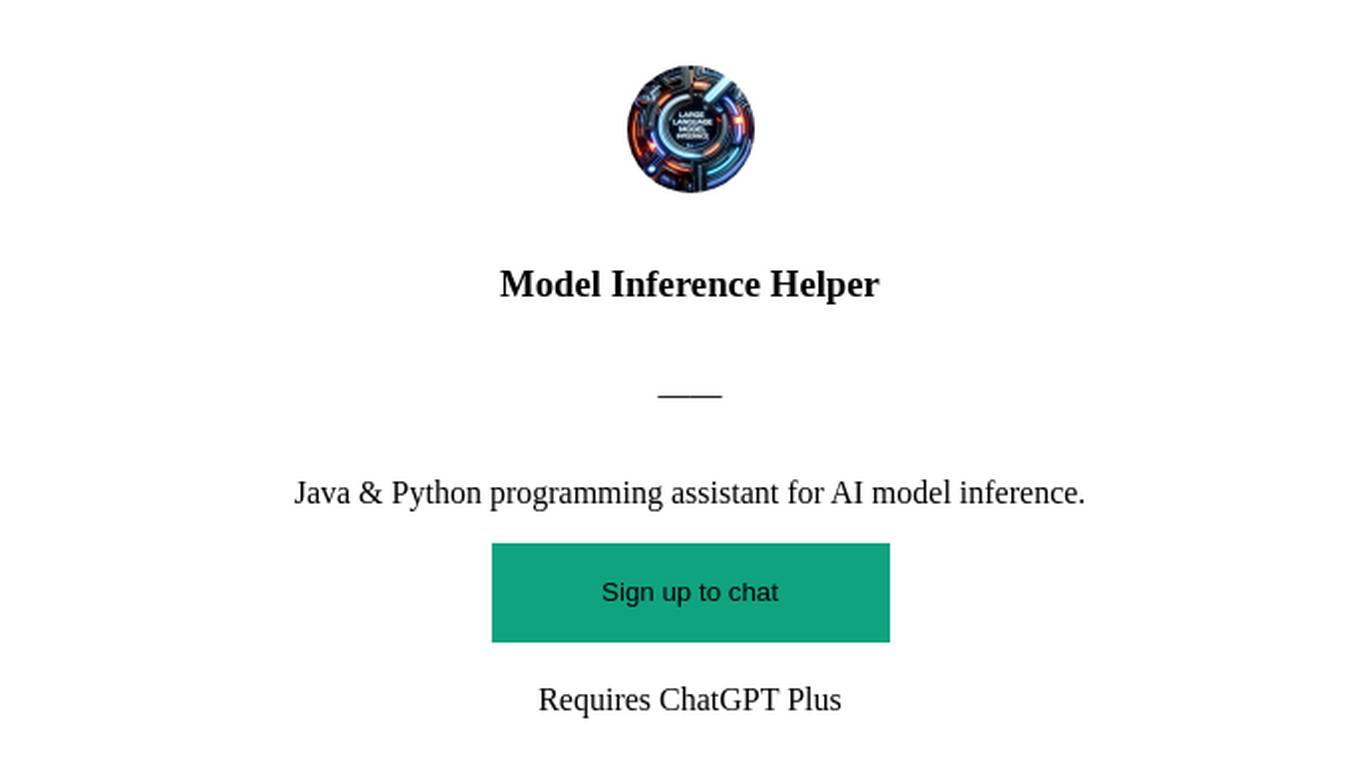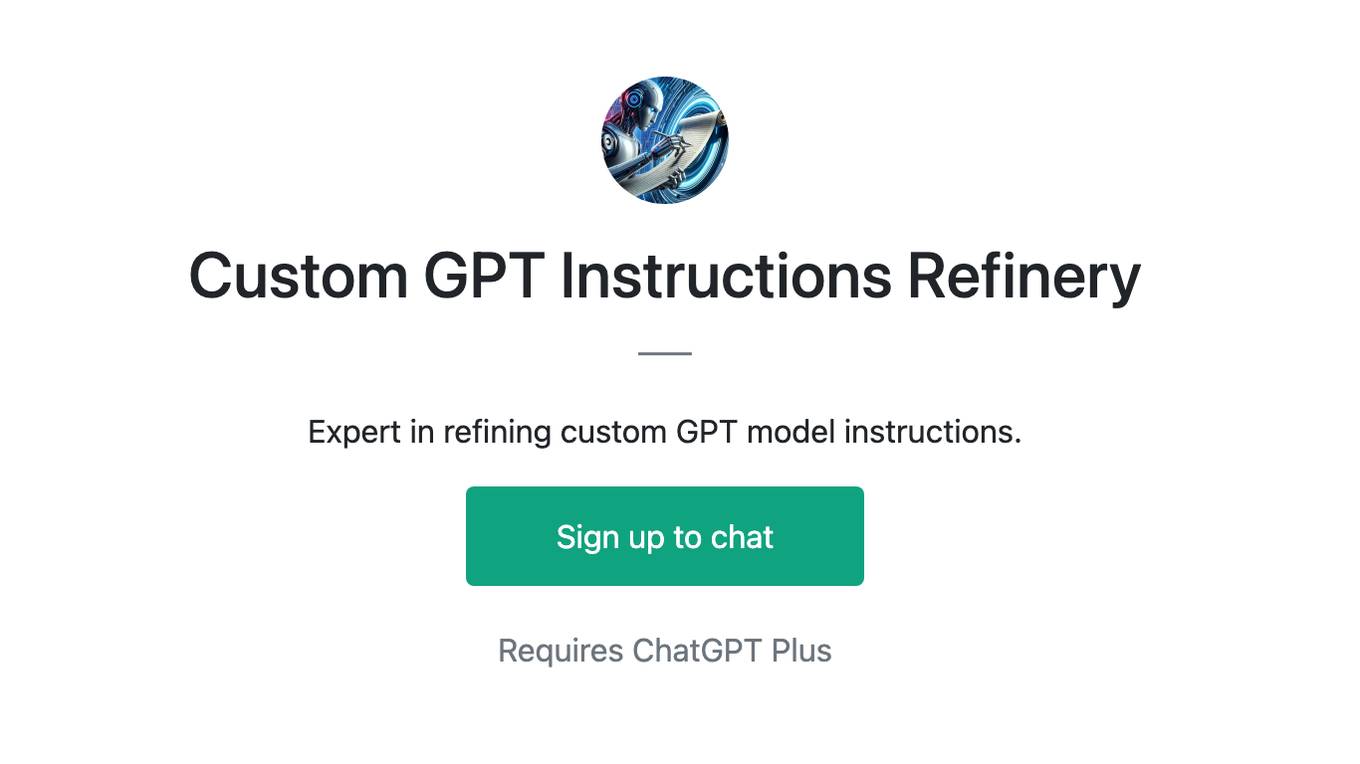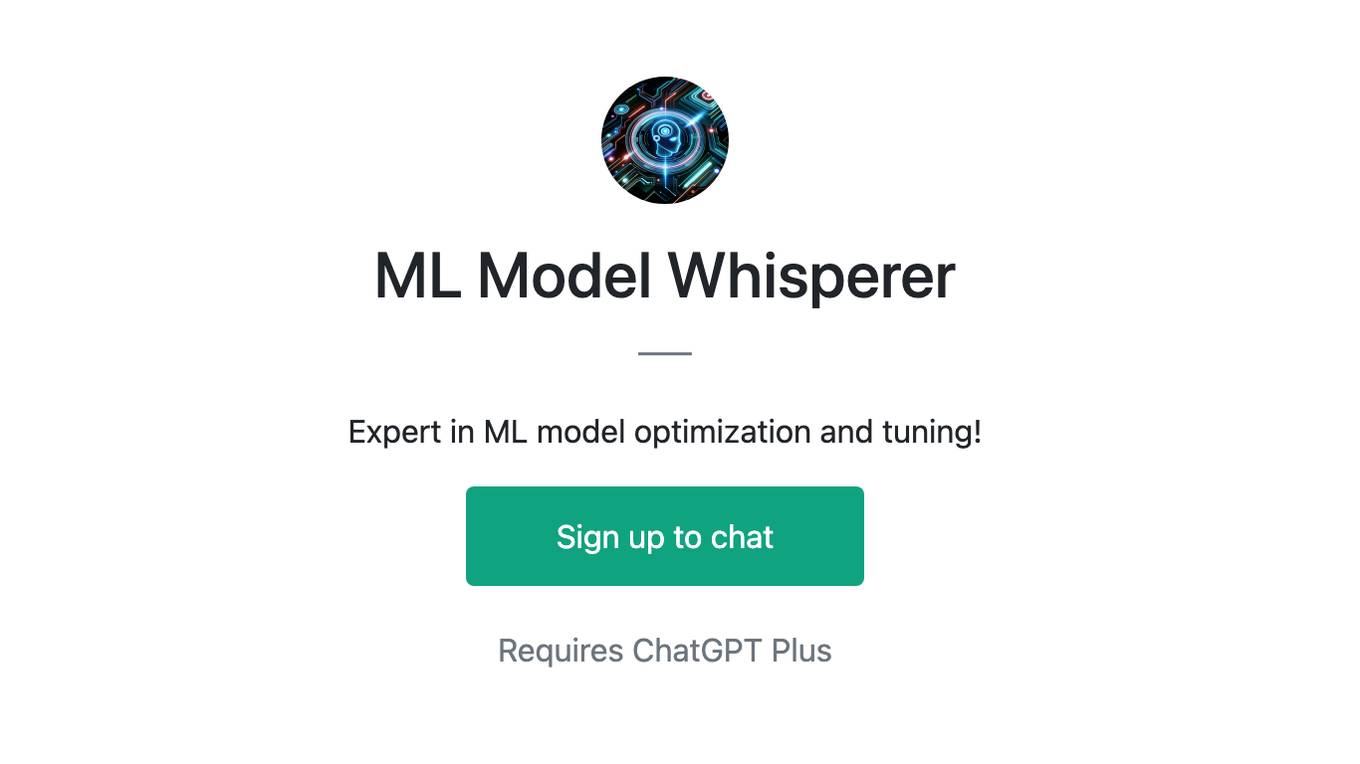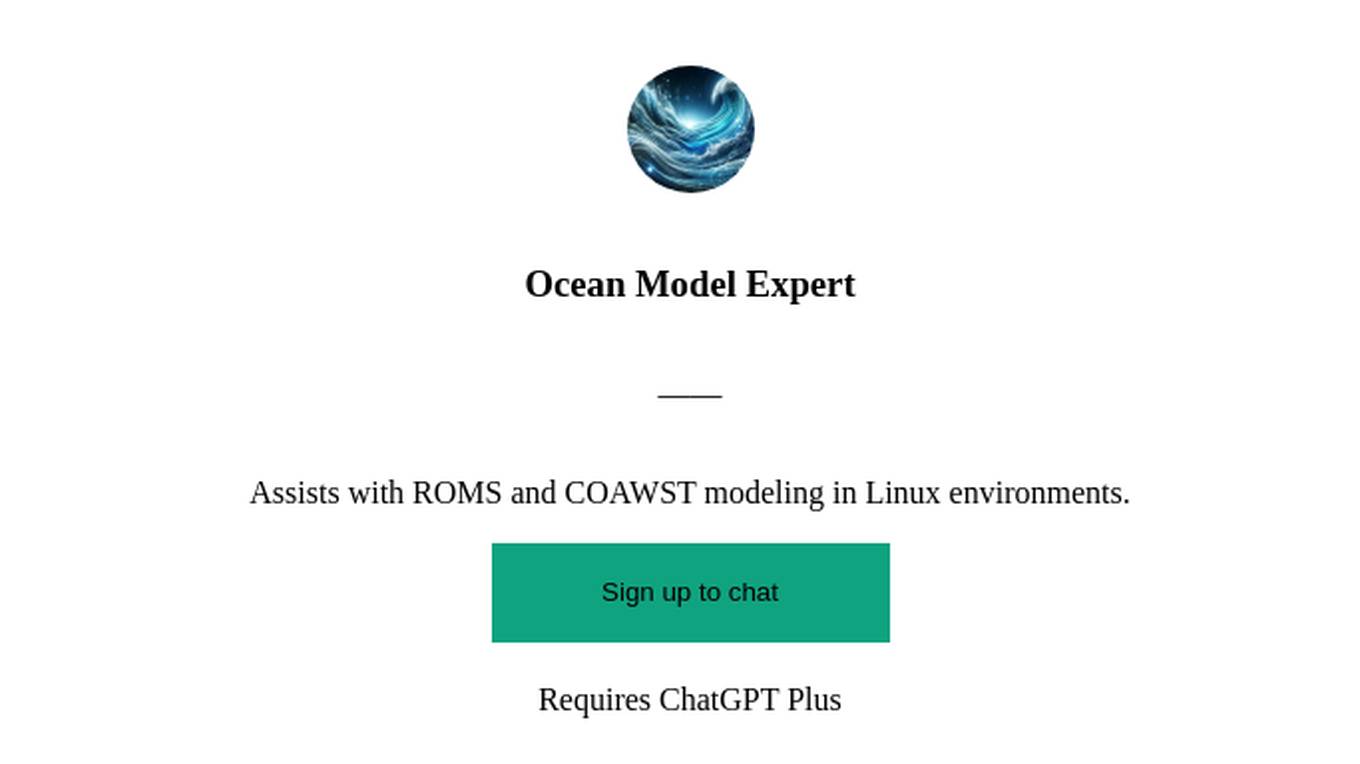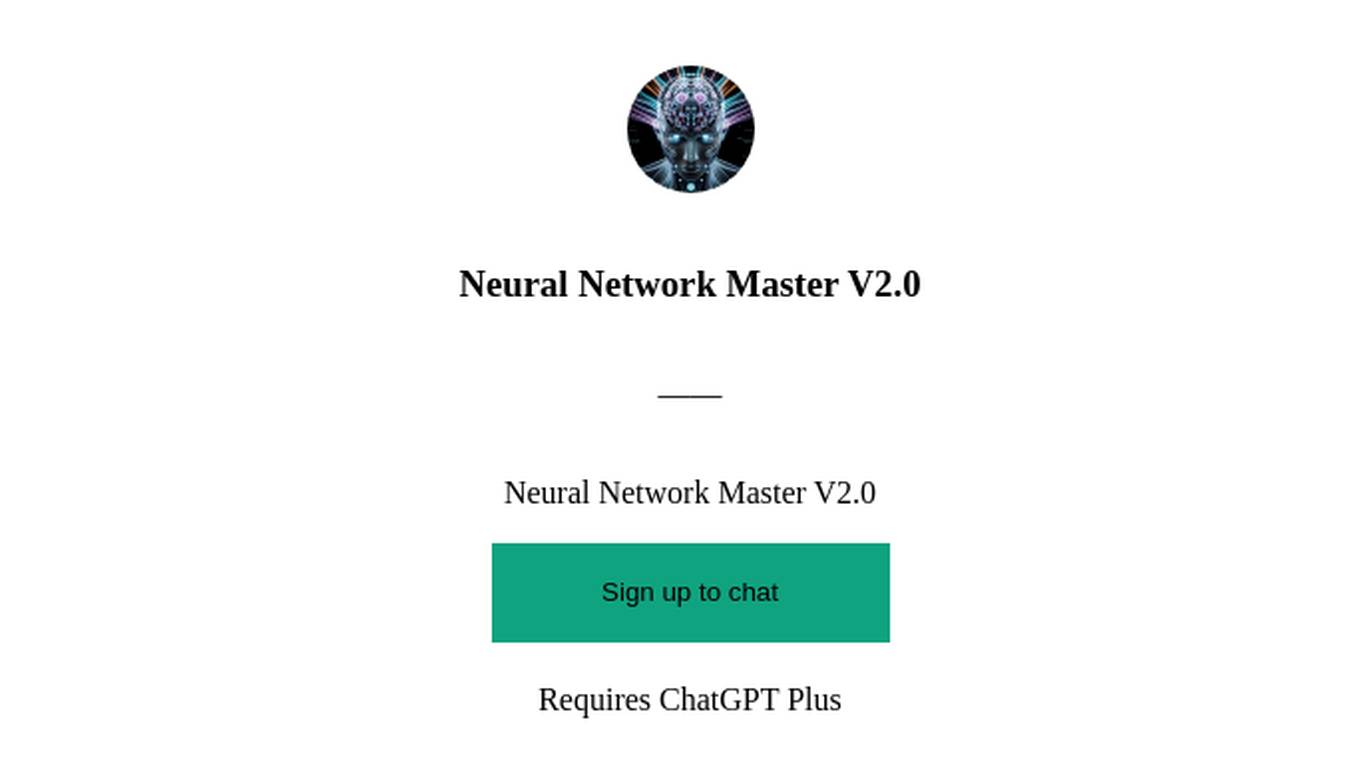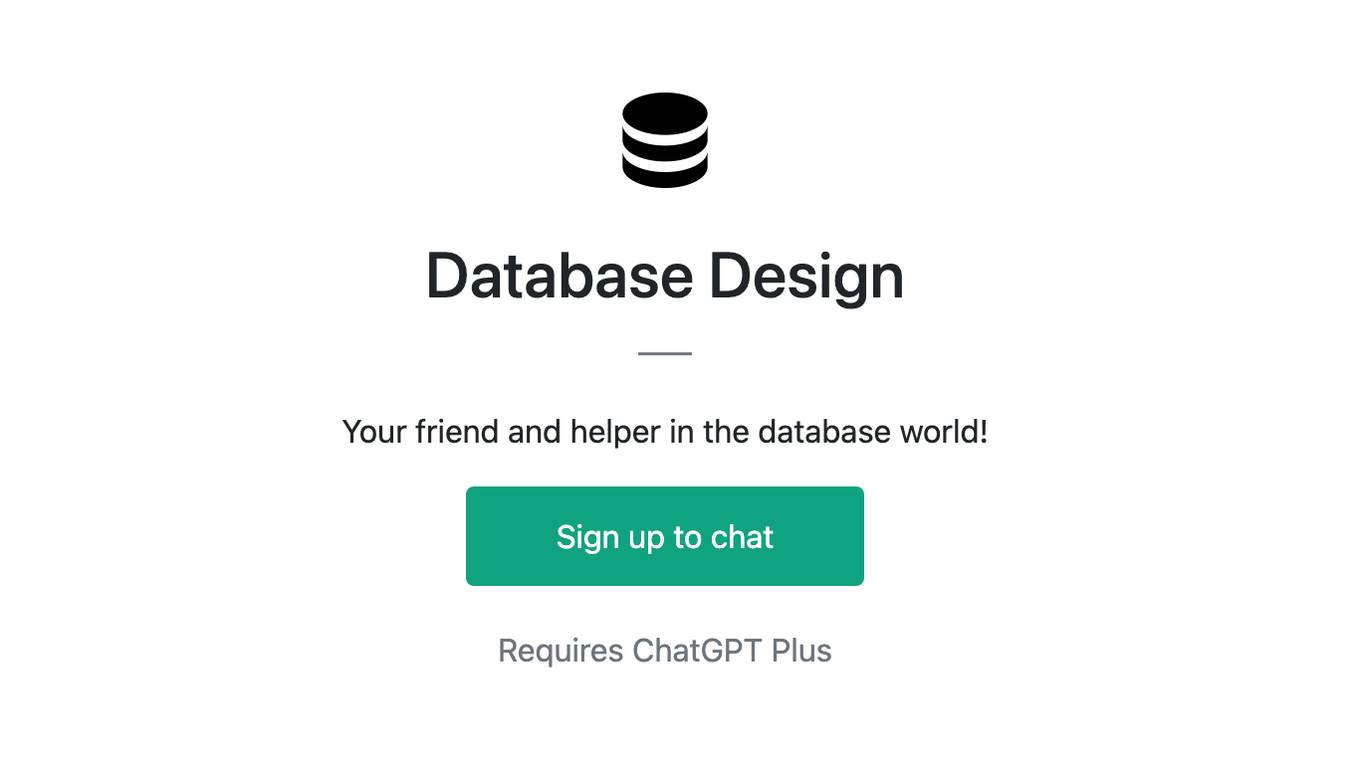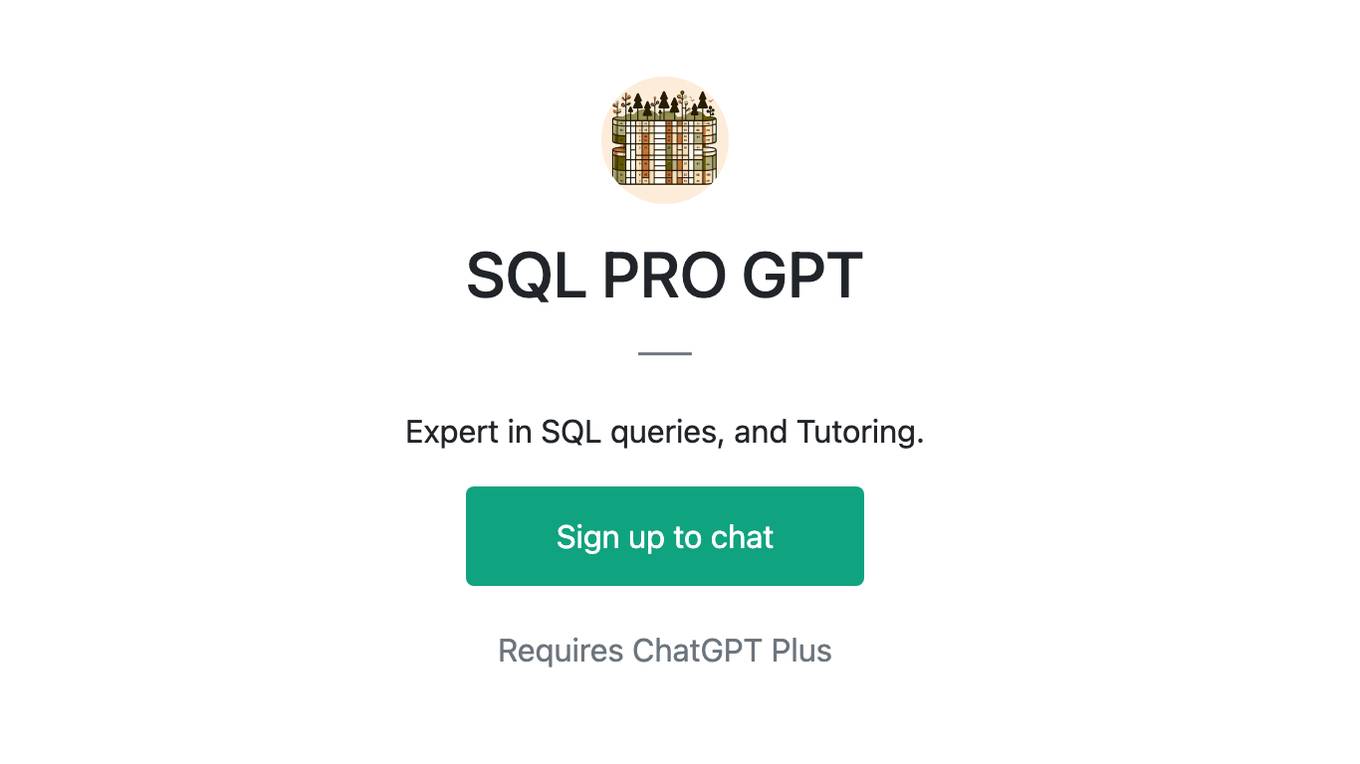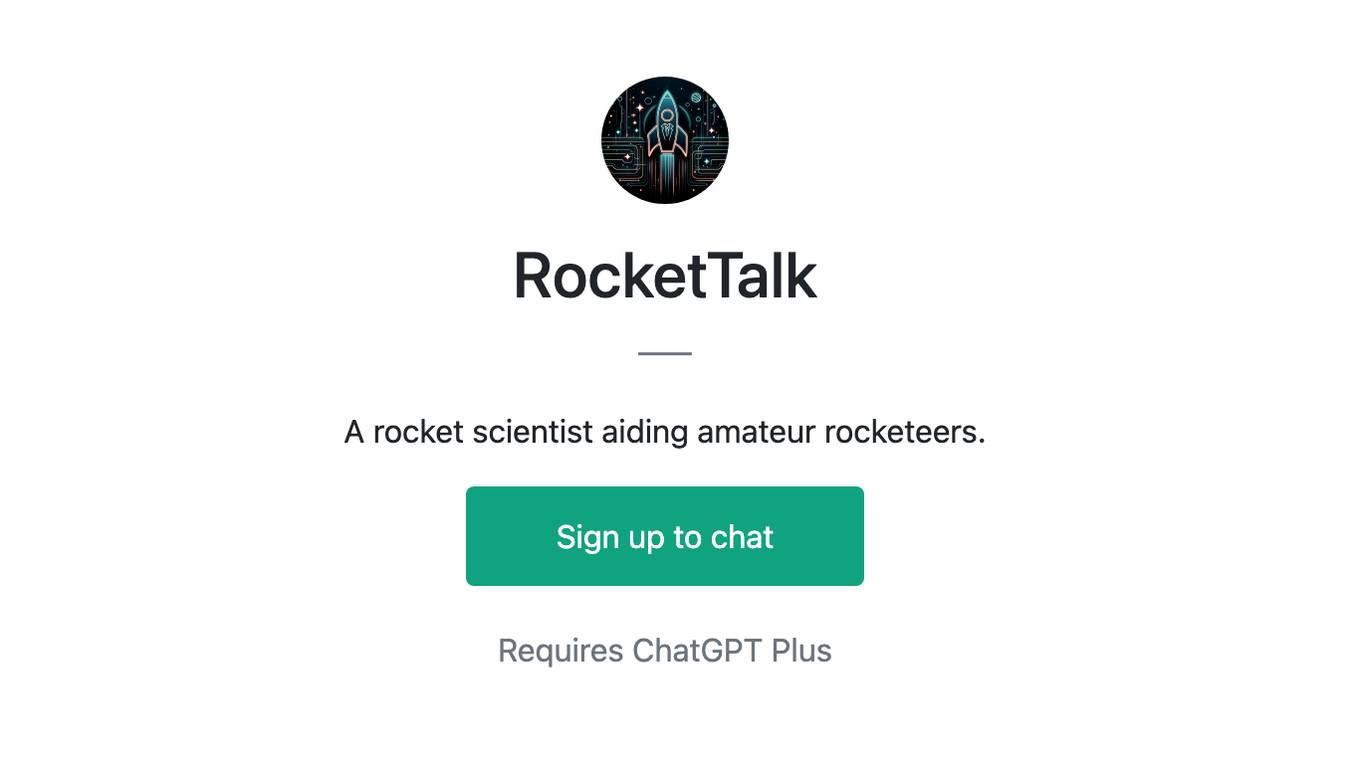Best AI tools for< Optimize Model Deployment >
20 - AI tool Sites
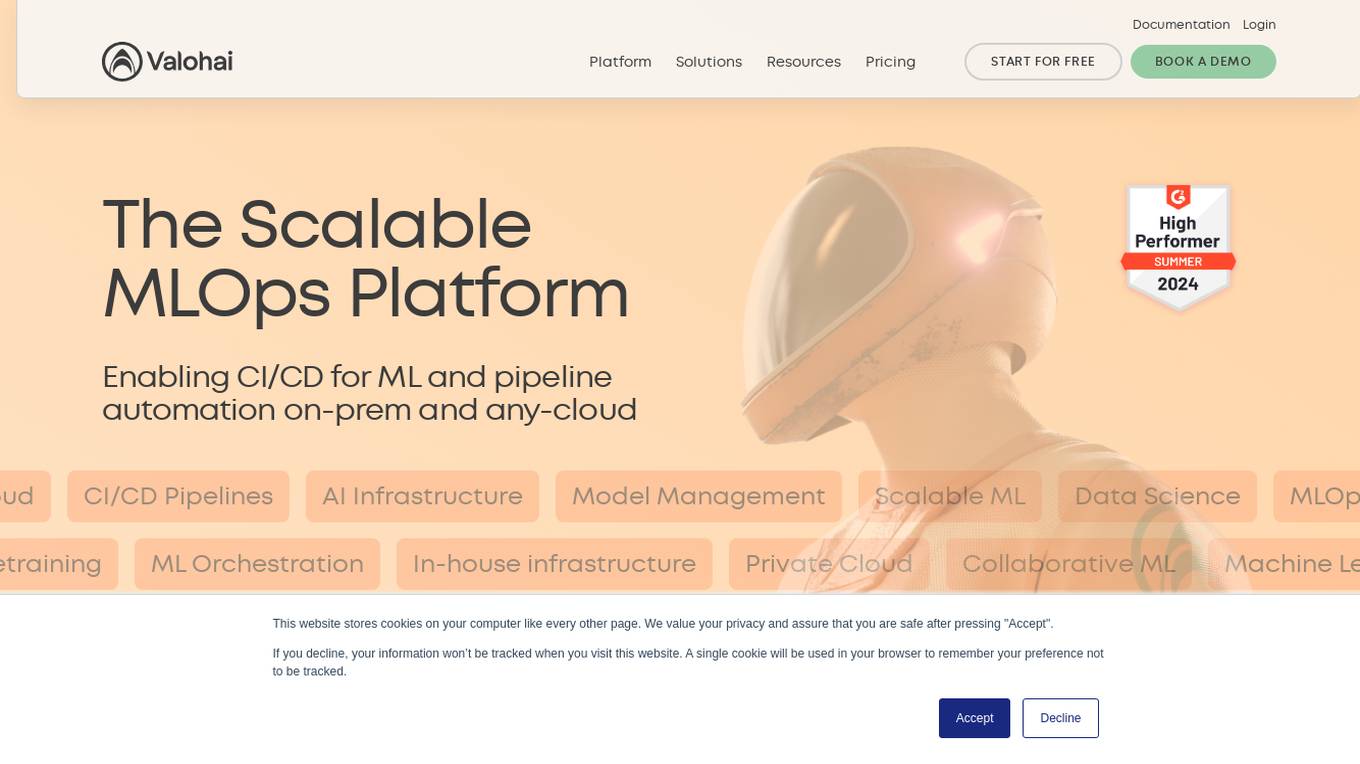
Valohai
Valohai is a scalable MLOps platform that enables Continuous Integration/Continuous Deployment (CI/CD) for machine learning and pipeline automation on-premises and across various cloud environments. It helps streamline complex machine learning workflows by offering framework-agnostic ML capabilities, automatic versioning with complete lineage of ML experiments, hybrid and multi-cloud support, scalability and performance optimization, streamlined collaboration among data scientists, IT, and business units, and smart orchestration of ML workloads on any infrastructure. Valohai also provides a knowledge repository for storing and sharing the entire model lifecycle, facilitating cross-functional collaboration, and allowing developers to build with total freedom using any libraries or frameworks.
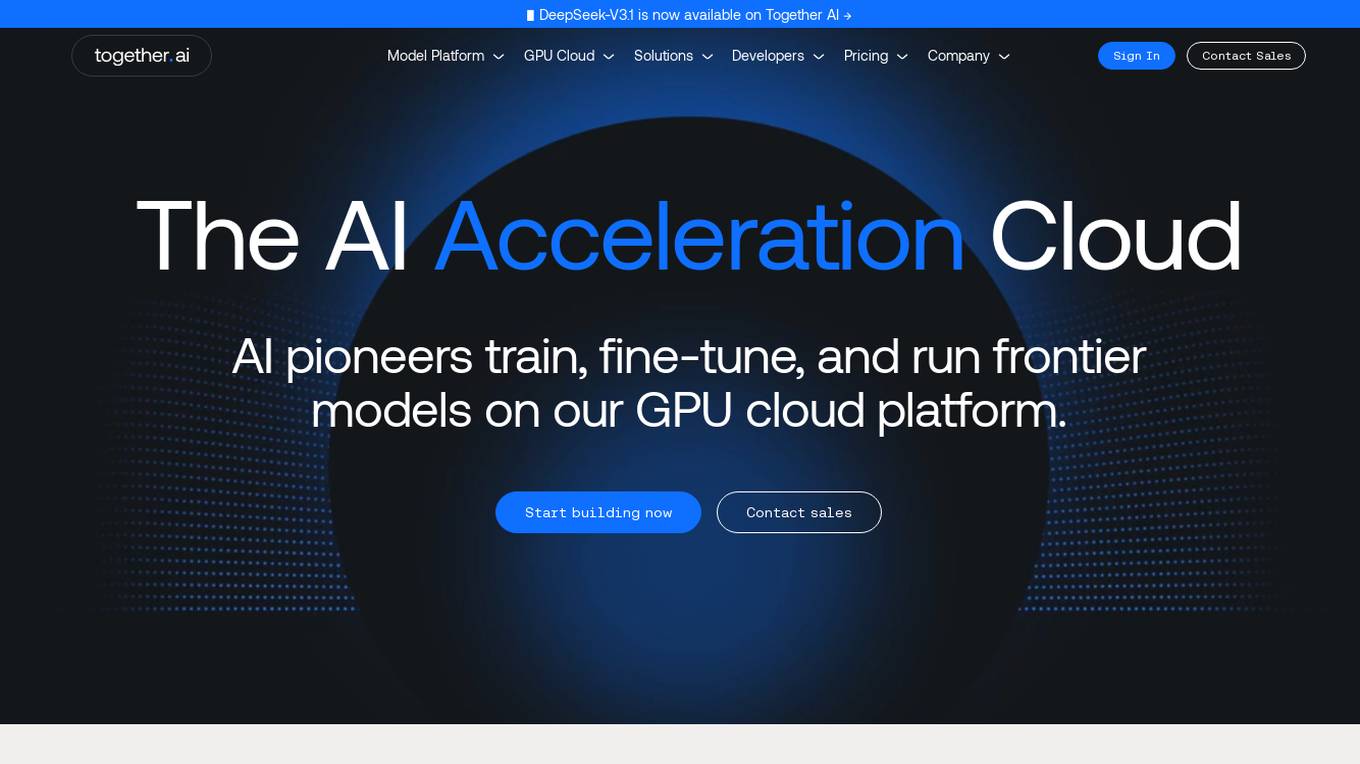
Together AI
Together AI is an AI Acceleration Cloud platform that offers fast inference, fine-tuning, and training services. It provides self-service NVIDIA GPUs, model deployment on custom hardware, AI chat app, code execution sandbox, and tools to find the right model for specific use cases. The platform also includes a model library with open-source models, documentation for developers, and resources for advancing open-source AI. Together AI enables users to leverage pre-trained models, fine-tune them, or build custom models from scratch, catering to various generative AI needs.
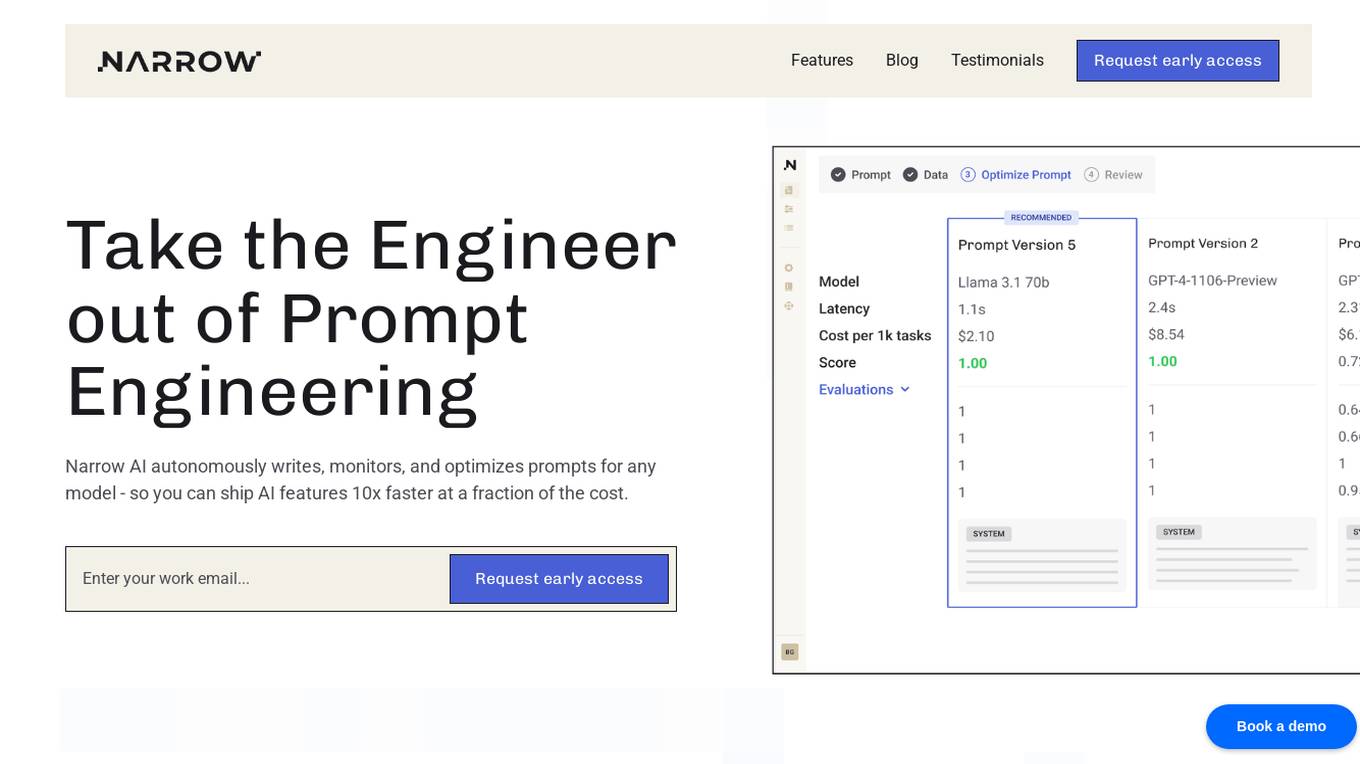
Narrow AI
Narrow AI is an AI application that autonomously writes, monitors, and optimizes prompts for any model, enabling users to ship AI features 10x faster at a fraction of the cost. It streamlines the workflow by allowing users to test new models in minutes, compare prompt performance, and deploy on the optimal model for their use case. Narrow AI helps users maximize efficiency by generating expert-level prompts, adapting prompts to new models, and optimizing prompts for quality, cost, and speed.
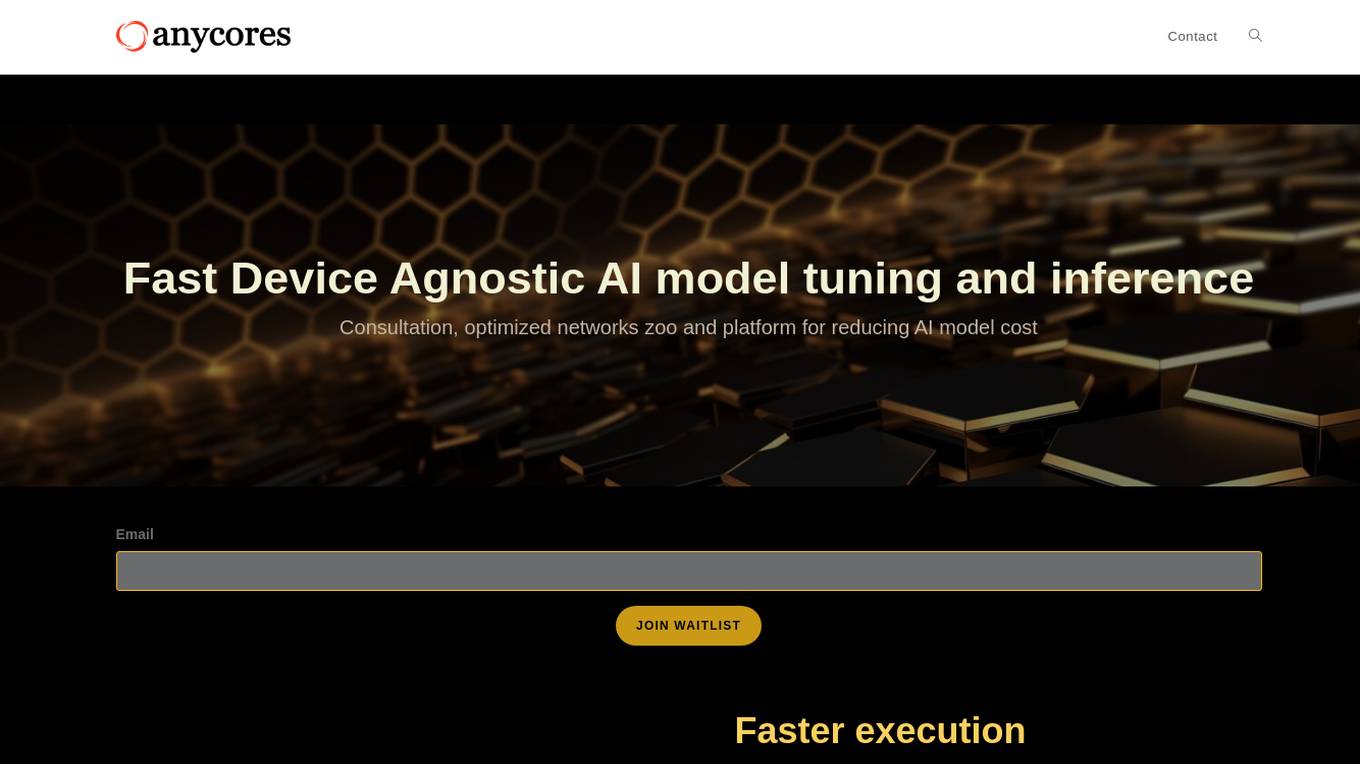
Anycores
Anycores is an AI tool designed to optimize the performance of deep neural networks and reduce the cost of running AI models in the cloud. It offers a platform that provides automated solutions for tuning and inference consultation, optimized networks zoo, and platform for reducing AI model cost. Anycores focuses on faster execution, reducing inference time over 10x times, and footprint reduction during model deployment. It is device agnostic, supporting Nvidia, AMD GPUs, Intel, ARM, AMD CPUs, servers, and edge devices. The tool aims to provide highly optimized, low footprint networks tailored to specific deployment scenarios.

Backend.AI
Backend.AI is an enterprise-scale cluster backend for AI frameworks that offers scalability, GPU virtualization, HPC optimization, and DGX-Ready software products. It provides a fast and efficient way to build, train, and serve AI models of any type and size, with flexible infrastructure options. Backend.AI aims to optimize backend resources, reduce costs, and simplify deployment for AI developers and researchers. The platform integrates seamlessly with existing tools and offers fractional GPU usage and pay-as-you-play model to maximize resource utilization.
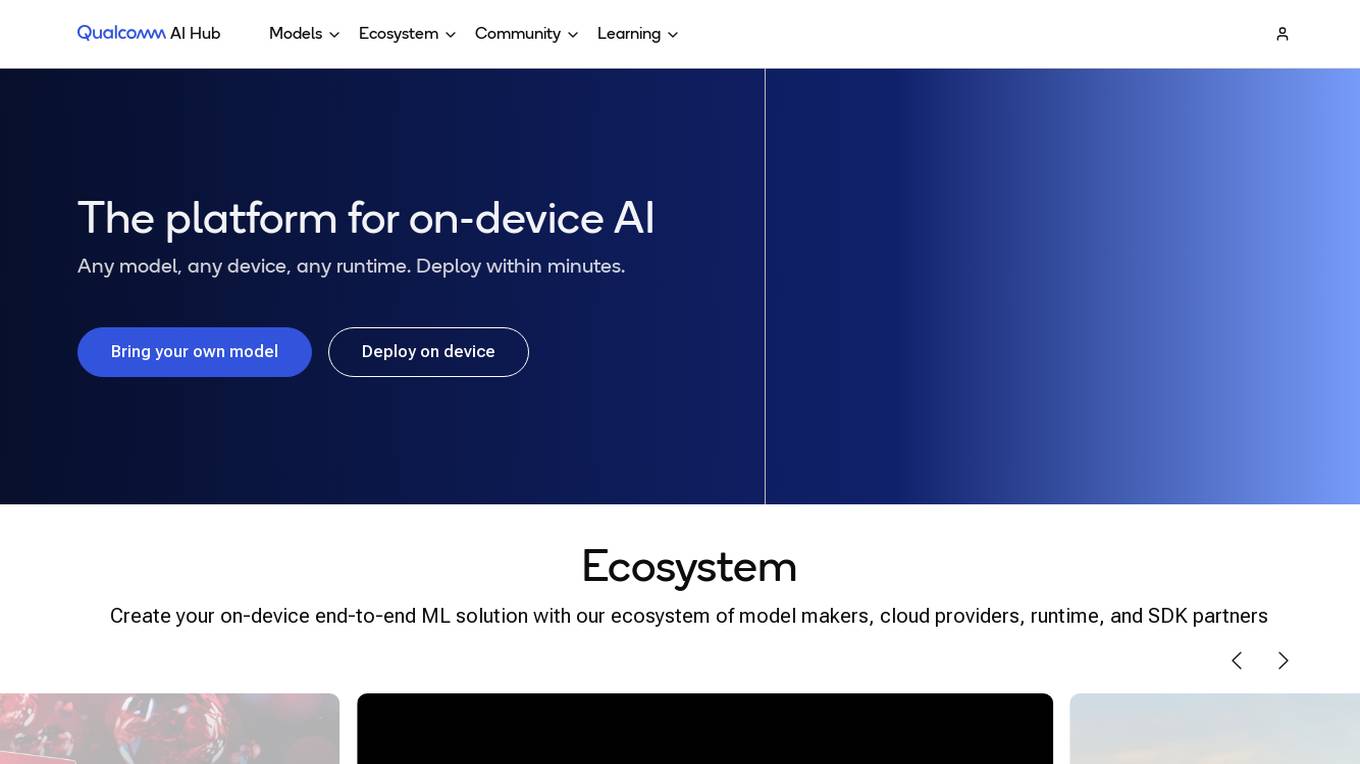
Qualcomm AI Hub
Qualcomm AI Hub is a platform that allows users to run AI models on Snapdragon® 8 Elite devices. It provides a collaborative ecosystem for model makers, cloud providers, runtime, and SDK partners to deploy on-device AI solutions quickly and efficiently. Users can bring their own models, optimize for deployment, and access a variety of AI services and resources. The platform caters to various industries such as mobile, automotive, and IoT, offering a range of models and services for edge computing.
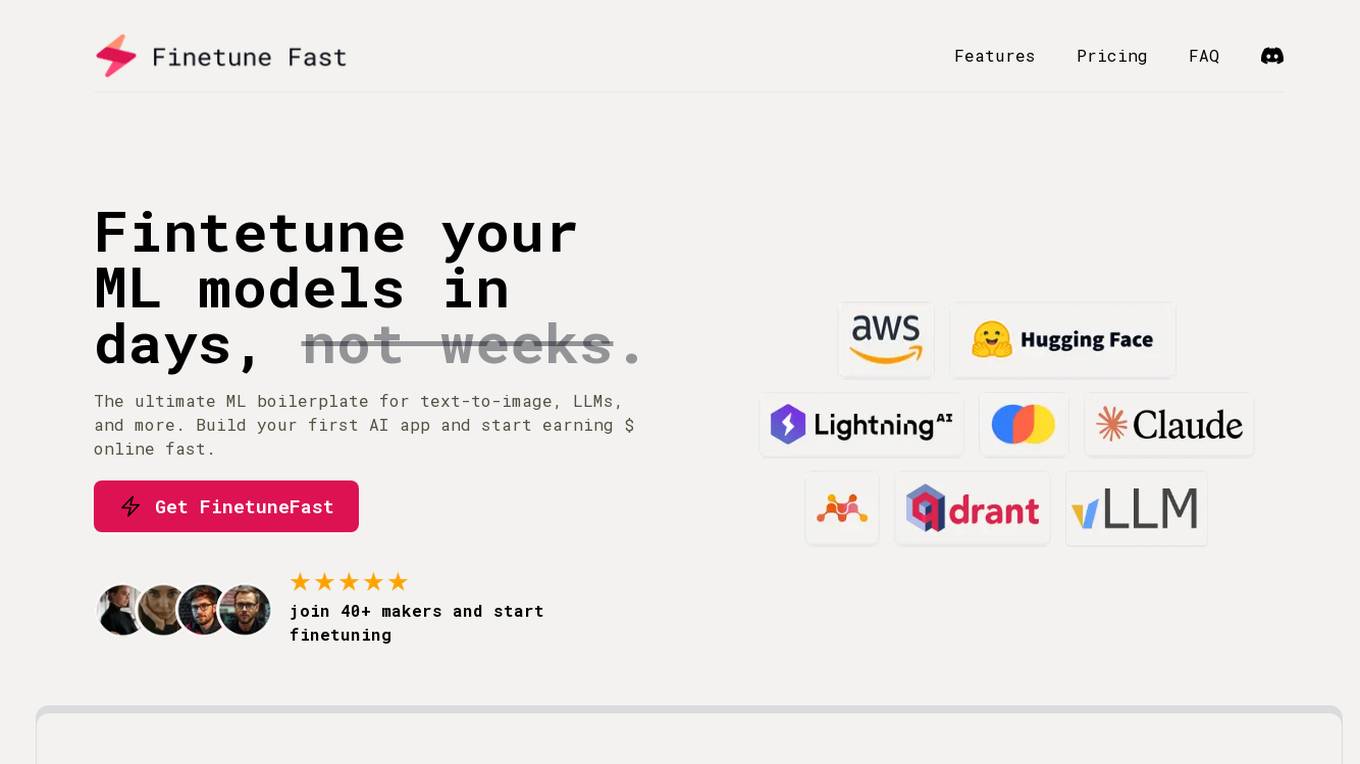
FinetuneFast
FinetuneFast is an AI tool designed to help developers, indie makers, and businesses to efficiently finetune machine learning models, process data, and deploy AI solutions at lightning speed. With pre-configured training scripts, efficient data loading pipelines, and one-click model deployment, FinetuneFast streamlines the process of building and deploying AI models, saving users valuable time and effort. The tool is user-friendly, accessible for ML beginners, and offers lifetime updates for continuous improvement.
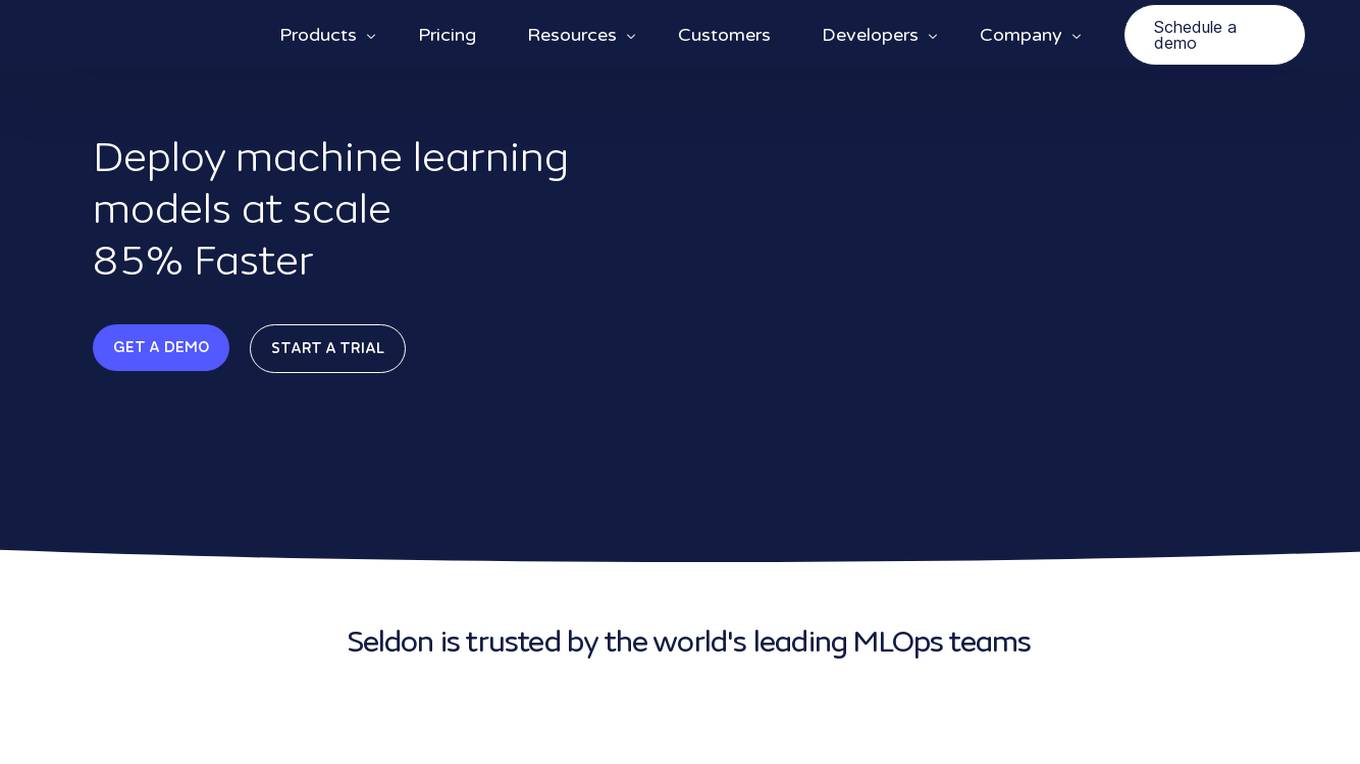
Seldon
Seldon is an MLOps platform that helps enterprises deploy, monitor, and manage machine learning models at scale. It provides a range of features to help organizations accelerate model deployment, optimize infrastructure resource allocation, and manage models and risk. Seldon is trusted by the world's leading MLOps teams and has been used to install and manage over 10 million ML models. With Seldon, organizations can reduce deployment time from months to minutes, increase efficiency, and reduce infrastructure and cloud costs.
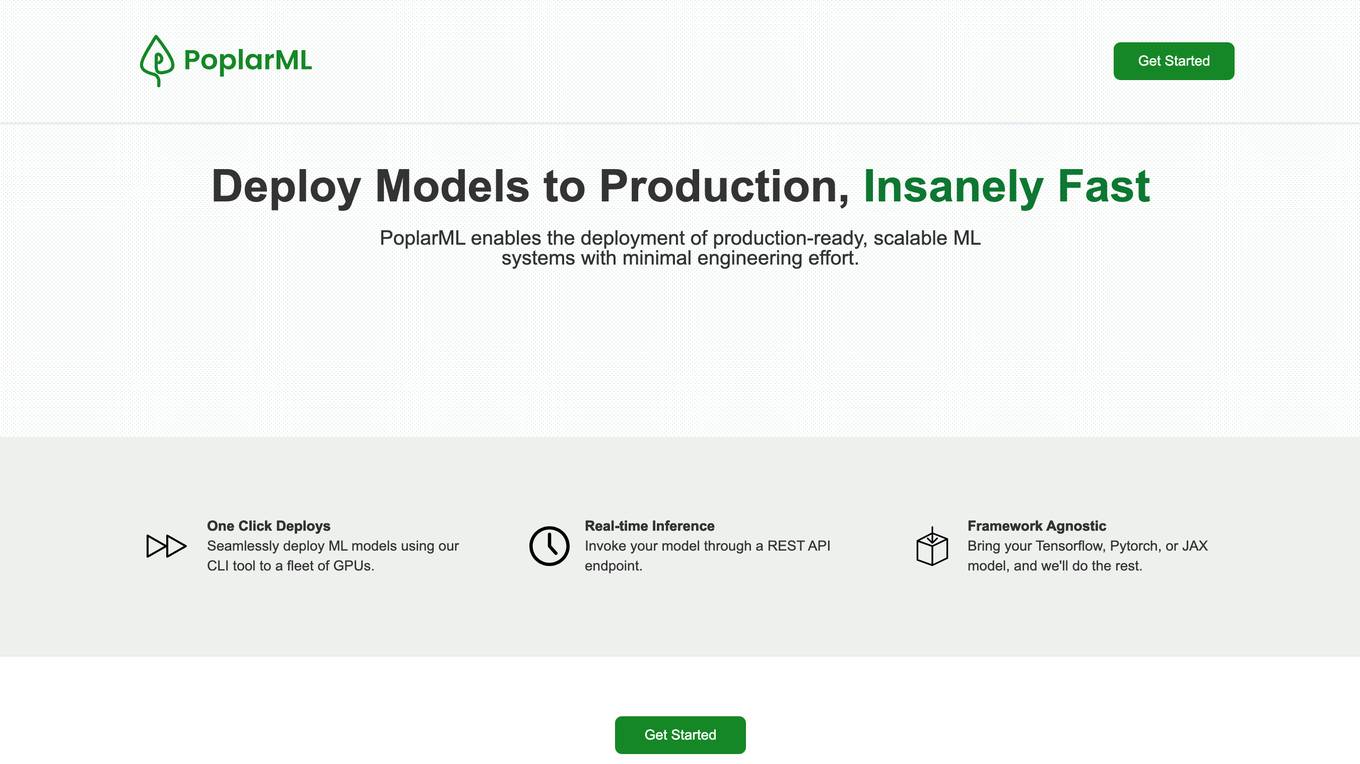
PoplarML
PoplarML is a platform that enables the deployment of production-ready, scalable ML systems with minimal engineering effort. It offers one-click deploys, real-time inference, and framework agnostic support. With PoplarML, users can seamlessly deploy ML models using a CLI tool to a fleet of GPUs and invoke their models through a REST API endpoint. The platform supports Tensorflow, Pytorch, and JAX models.
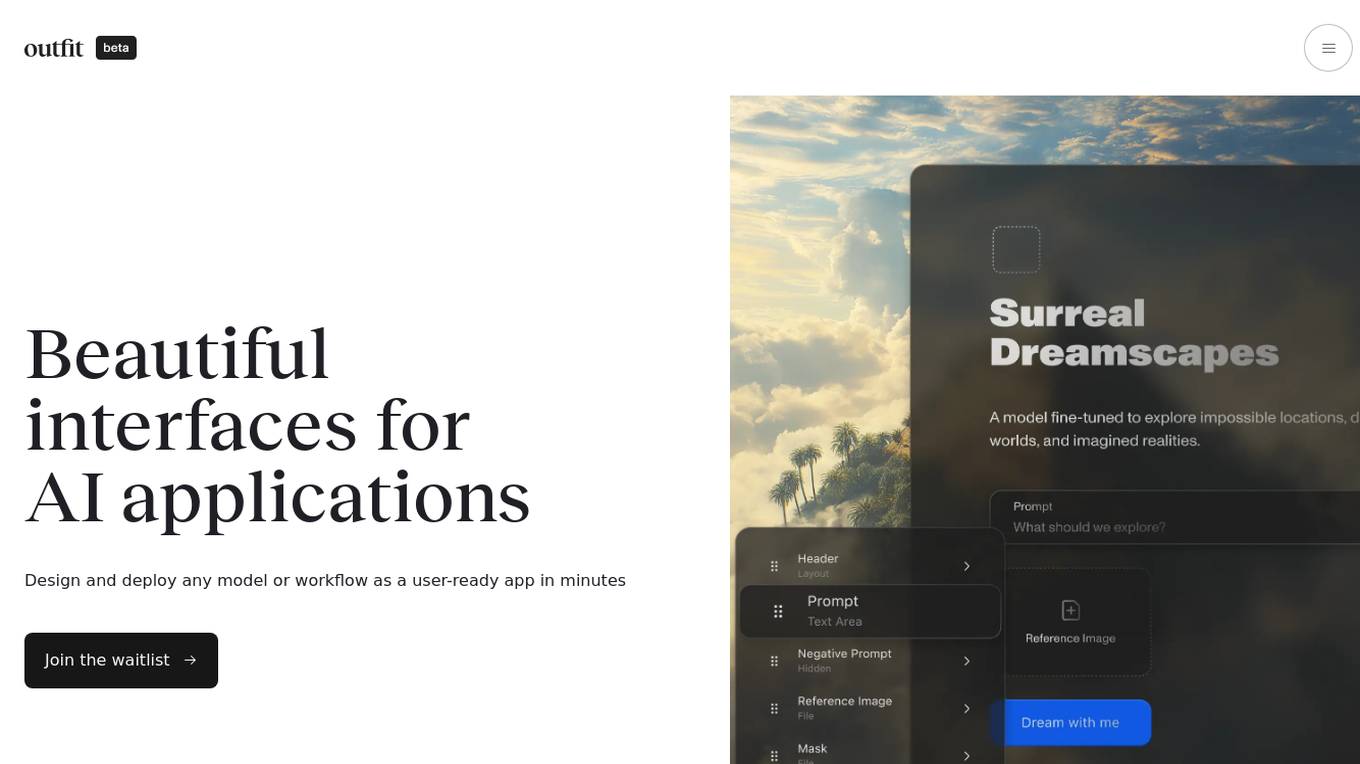
Outfit AI
Outfit AI is an AI tool that enables users to design and deploy AI models or workflows as user-ready applications in minutes. It allows users to create custom user interfaces for their AI-powered apps by dropping in an API key from Replicate or Hugging Face. With Outfit AI, users can have creative control over the design of their apps, build complex workflows without any code, and optimize prompts for better performance. The tool aims to help users launch their models faster, save time, and enhance their AI applications with a built-in product copilot.

DataRobot
DataRobot is an AI tool that provides product documentation for users. It offers a comprehensive platform for leveraging AI and machine learning to automate and optimize various processes. With DataRobot, users can build, deploy, and manage machine learning models efficiently, enabling data-driven decision-making across different industries.
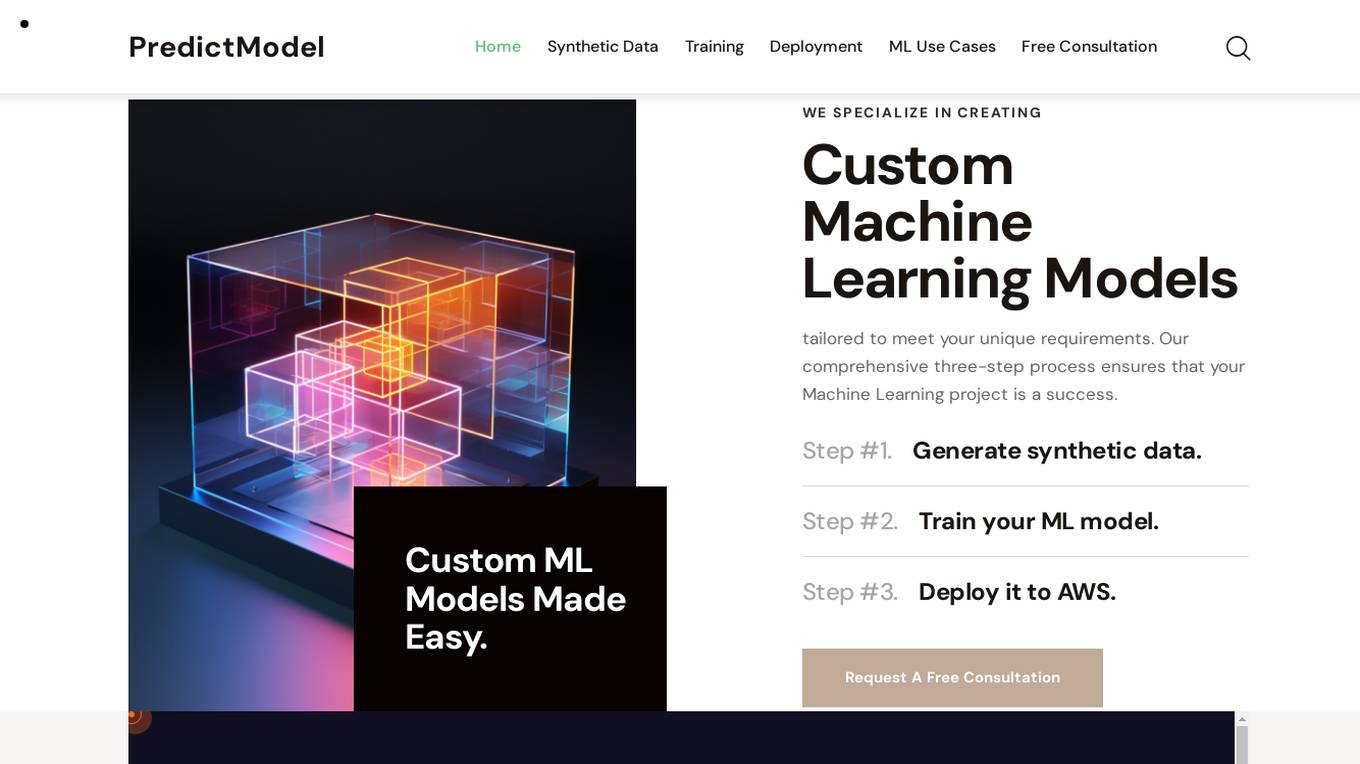
PredictModel
PredictModel is an AI tool that specializes in creating custom Machine Learning models tailored to meet unique requirements. The platform offers a comprehensive three-step process, including generating synthetic data, training ML models, and deploying them to AWS. PredictModel helps businesses streamline processes, improve customer segmentation, enhance client interaction, and boost overall business performance. The tool maximizes accuracy through customized synthetic data generation and saves time and money by providing expert ML engineers. With a focus on automated lead prioritization, fraud detection, cost optimization, and planning, PredictModel aims to stay ahead of the curve in the ML industry.
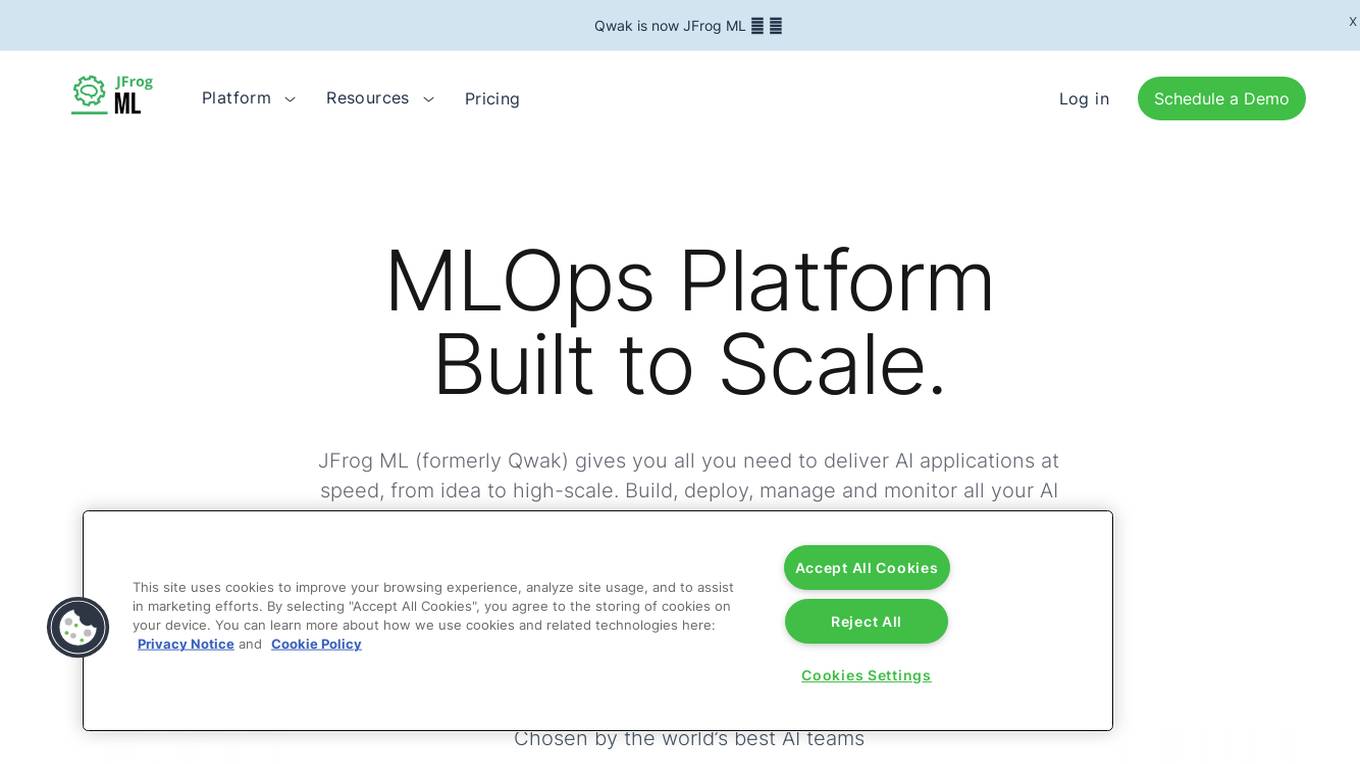
JFrog ML
JFrog ML is an AI platform designed to streamline AI development from prototype to production. It offers a unified MLOps platform to build, train, deploy, and manage AI workflows at scale. With features like Feature Store, LLMOps, and model monitoring, JFrog ML empowers AI teams to collaborate efficiently and optimize AI & ML models in production.
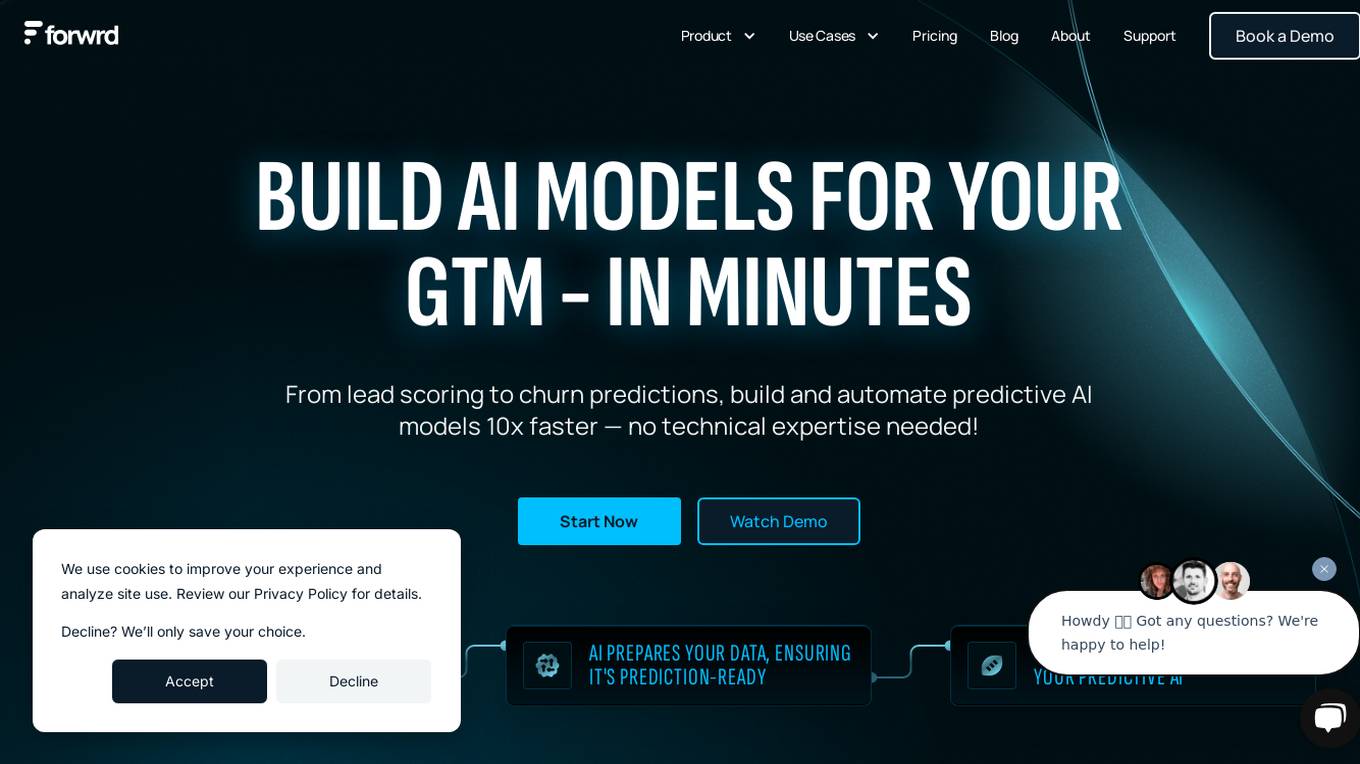
Forwrd AI
Forwrd AI is an AI application that supercharges your go-to-market strategy by providing a comprehensive product platform for data integration, analysis, predictive modeling, and data activation. It offers various use cases such as marketing lead scoring, PQL scoring, account scoring, warmth meter, sales SAL prediction, opportunity scoring, territory management, customer success, churn prediction, and upsell prediction. With Forwrd AI, users can build and automate predictive AI models quickly without the need for technical expertise. The platform ensures data readiness for predictions, streamlines model creation and deployment, and leverages all available data points for accurate insights. Forwrd AI is trusted by industry leaders and helps users optimize marketing strategies, accelerate sales, and enhance customer retention through advanced BI, predictive insights, and analytics.
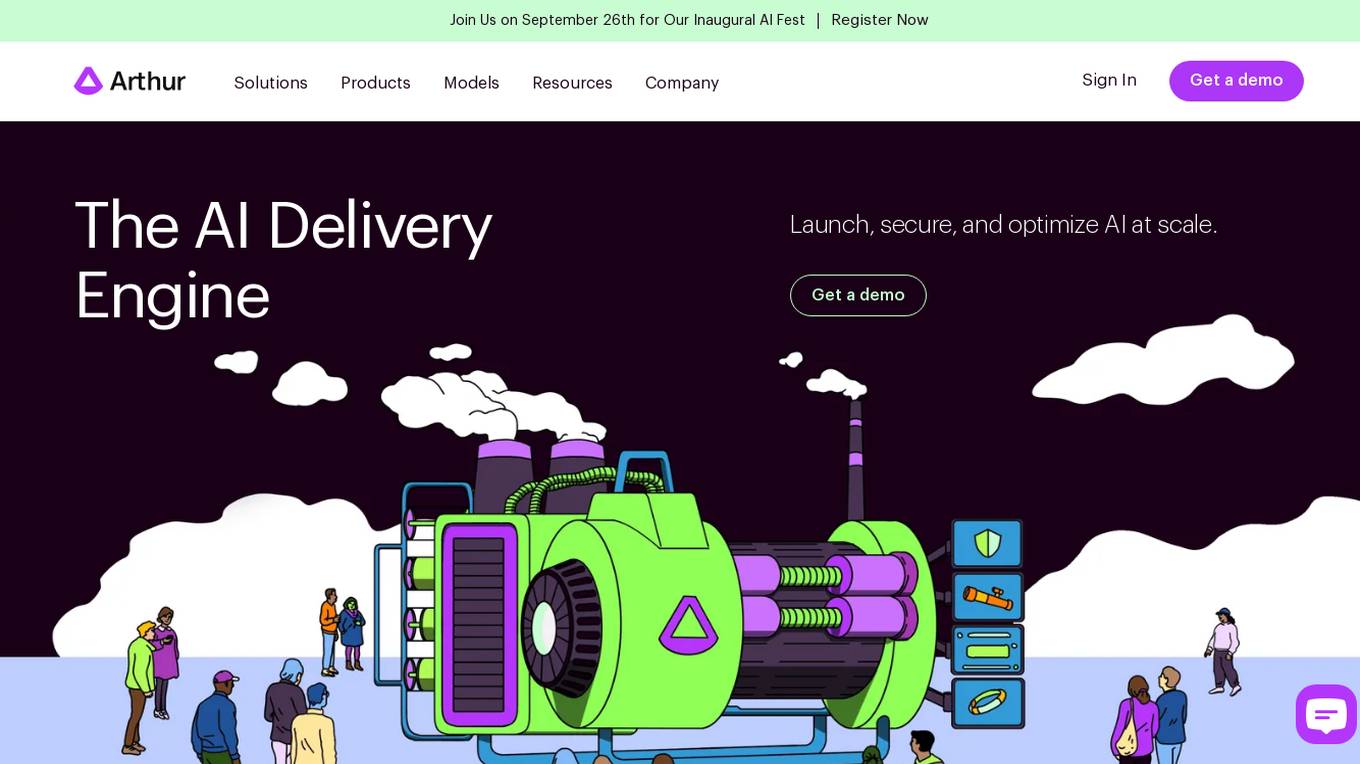
Arthur
Arthur is an industry-leading MLOps platform that simplifies deployment, monitoring, and management of traditional and generative AI models. It ensures scalability, security, compliance, and efficient enterprise use. Arthur's turnkey solutions enable companies to integrate the latest generative AI technologies into their operations, making informed, data-driven decisions. The platform offers open-source evaluation products, model-agnostic monitoring, deployment with leading data science tools, and model risk management capabilities. It emphasizes collaboration, security, and compliance with industry standards.
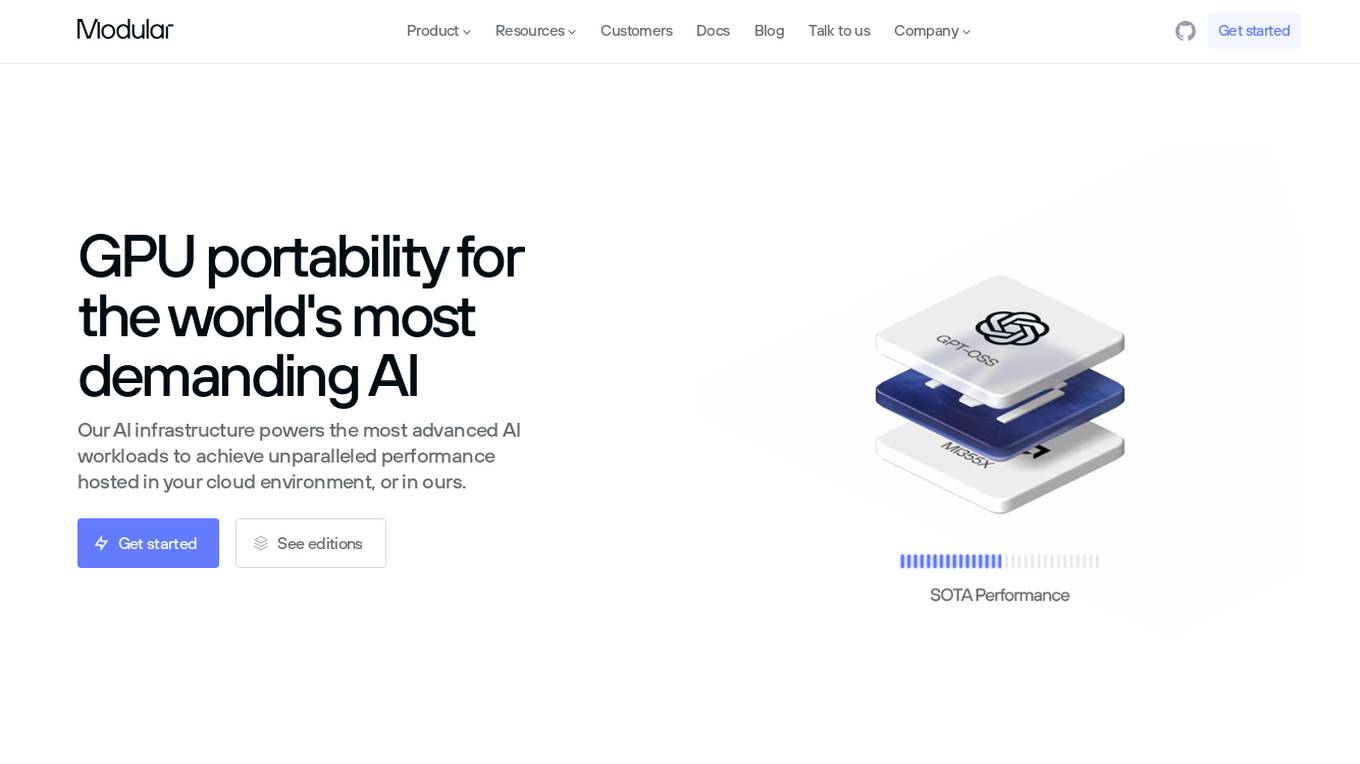
Modular
Modular is a fast, scalable Gen AI inference platform that offers a comprehensive suite of tools and resources for AI development and deployment. It provides solutions for AI model development, deployment options, AI inference, research, and resources like documentation, models, tutorials, and step-by-step guides. Modular supports GPU and CPU performance, intelligent scaling to any cluster, and offers deployment options for various editions. The platform enables users to build agent workflows, utilize AI retrieval and controlled generation, develop chatbots, engage in code generation, and improve resource utilization through batch processing.
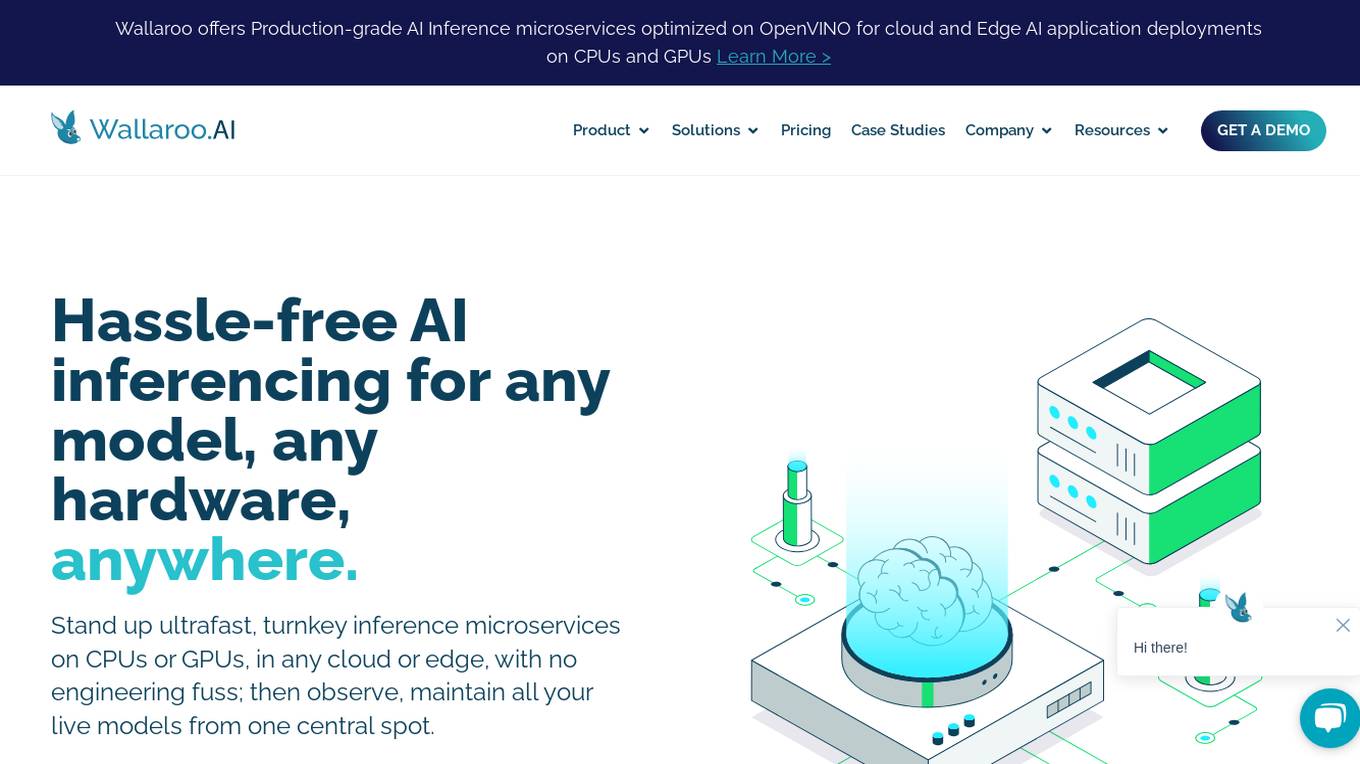
Wallaroo.AI
Wallaroo.AI is an AI inference platform that offers production-grade AI inference microservices optimized on OpenVINO for cloud and Edge AI application deployments on CPUs and GPUs. It provides hassle-free AI inferencing for any model, any hardware, anywhere, with ultrafast turnkey inference microservices. The platform enables users to deploy, manage, observe, and scale AI models effortlessly, reducing deployment costs and time-to-value significantly.
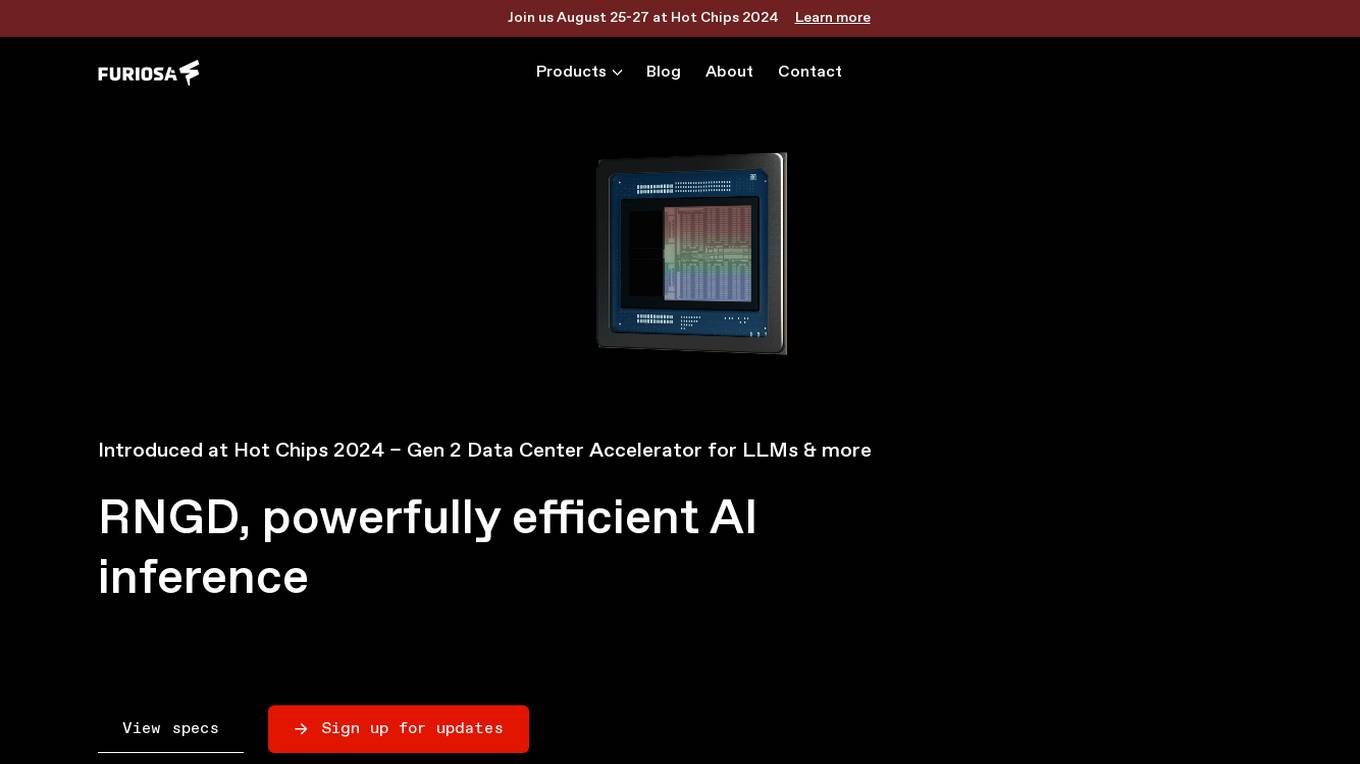
FuriosaAI
FuriosaAI is an AI application that offers Hardware RNGD for LLM and Multimodality, as well as WARBOY for Computer Vision. It provides a comprehensive developer experience through the Furiosa SDK, Model Zoo, and Dev Support. The application focuses on efficient AI inference, high-performance LLM and multimodal deployment capabilities, and sustainable mass adoption of AI. FuriosaAI features the Tensor Contraction Processor architecture, software for streamlined LLM deployment, and a robust ecosystem support. It aims to deliver powerful and efficient deep learning acceleration while ensuring future-proof programmability and efficiency.
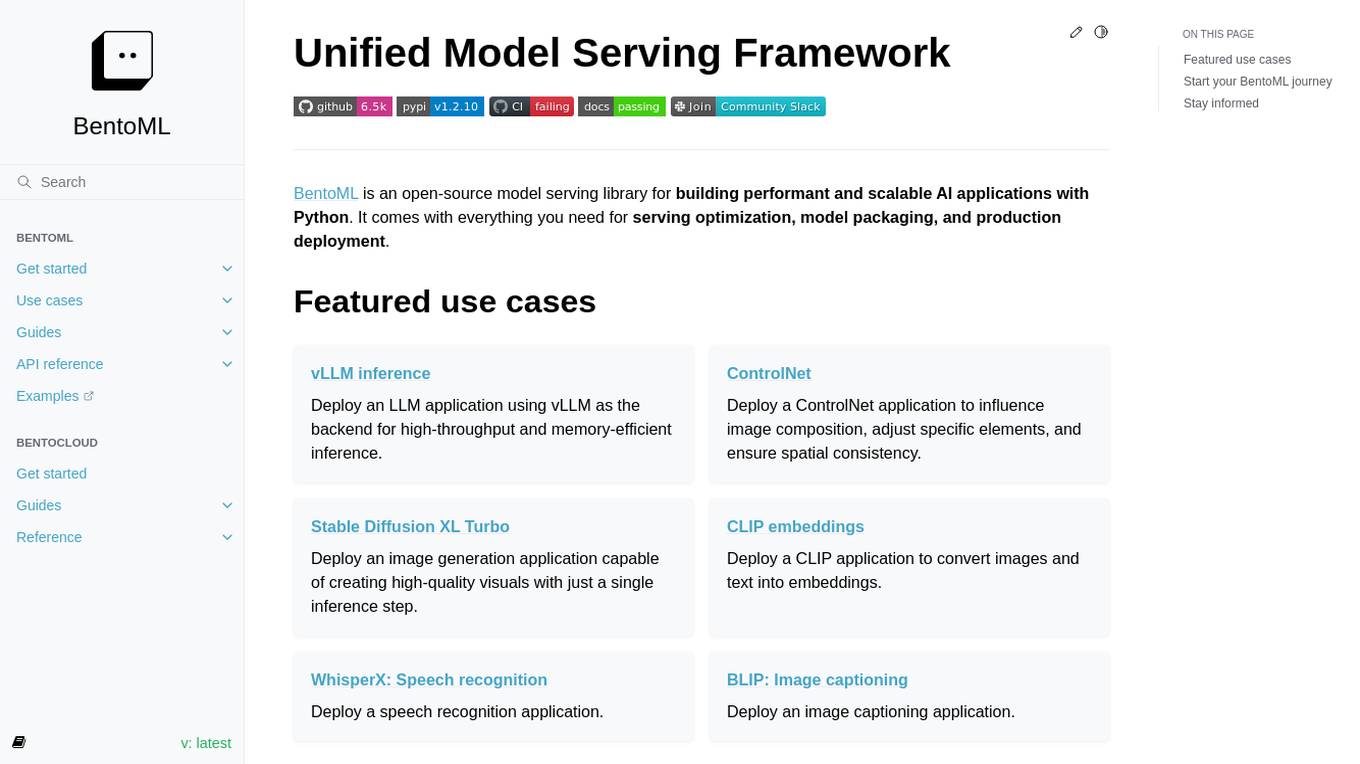
BentoML
BentoML is a framework for building reliable, scalable, and cost-efficient AI applications. It provides everything needed for model serving, application packaging, and production deployment.

BigBear.ai
BigBear.ai is an AI-powered decision intelligence solutions provider that offers services across various industries including Government & Defense, Manufacturing & Warehouse Operations, Healthcare & Life Sciences. They specialize in optimizing operational efficiency, force deployment, supply chain management, autonomous systems management, and vulnerability detection. Their solutions are designed to improve situational awareness, streamline production processes, and enhance patient care delivery settings.
1 - Open Source AI Tools
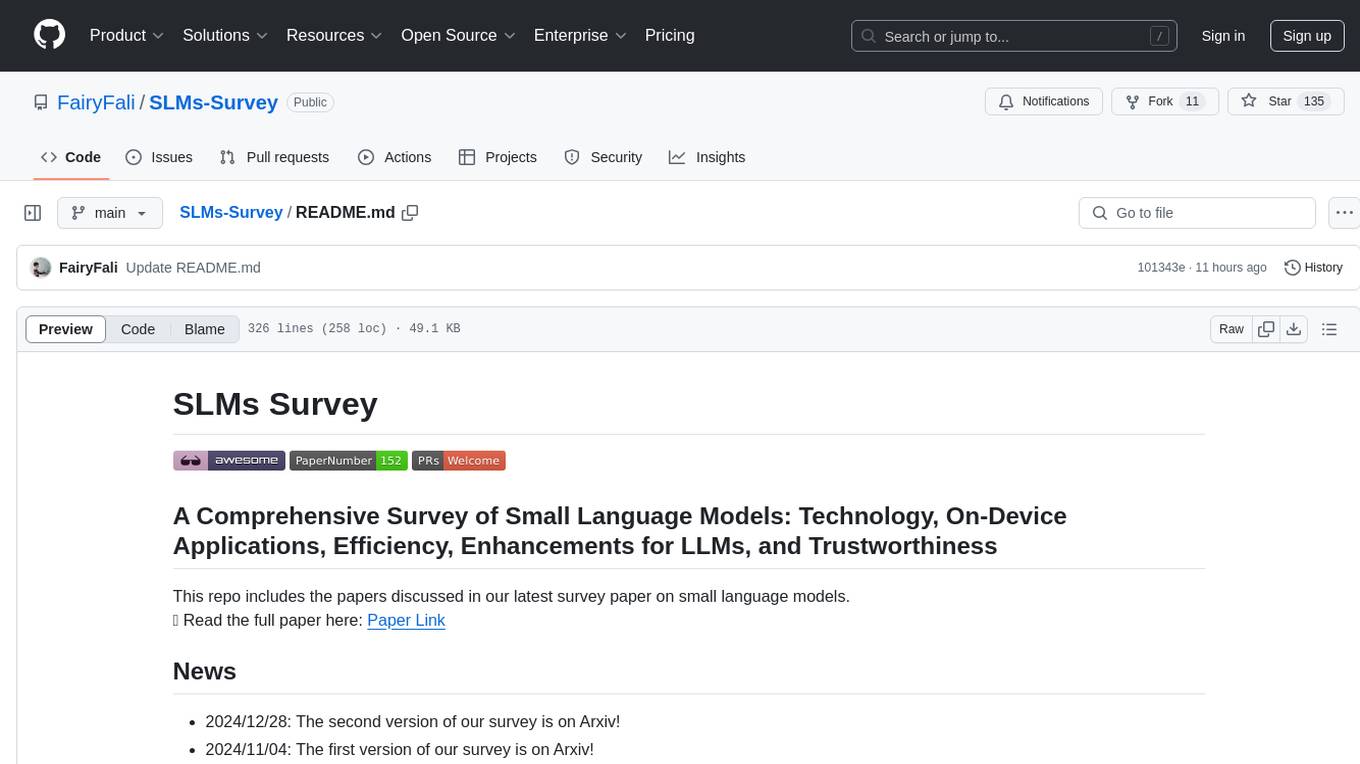
SLMs-Survey
SLMs-Survey is a comprehensive repository that includes papers and surveys on small language models. It covers topics such as technology, on-device applications, efficiency, enhancements for LLMs, and trustworthiness. The repository provides a detailed overview of existing SLMs, their architecture, enhancements, and specific applications in various domains. It also includes information on SLM deployment optimization techniques and the synergy between SLMs and LLMs.
20 - OpenAI Gpts
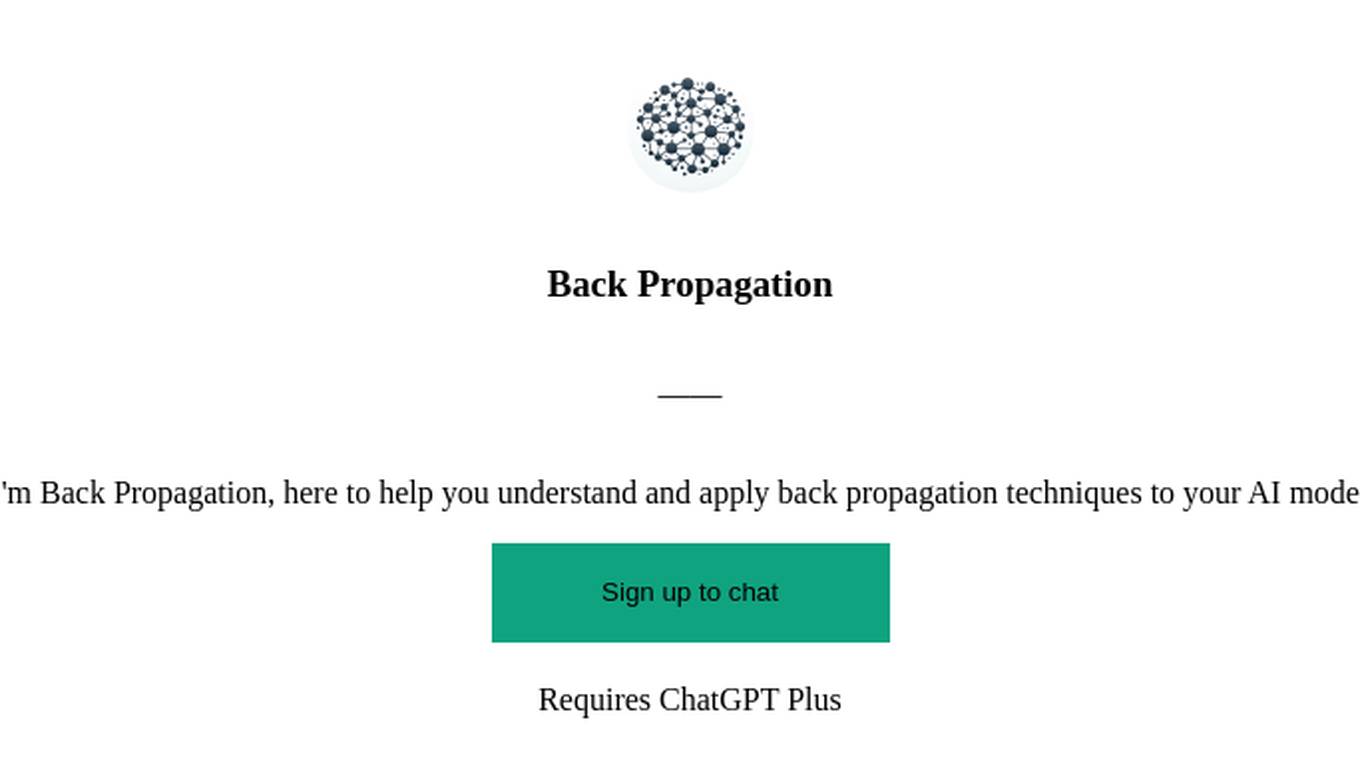
Back Propagation
I'm Back Propagation, here to help you understand and apply back propagation techniques to your AI models.
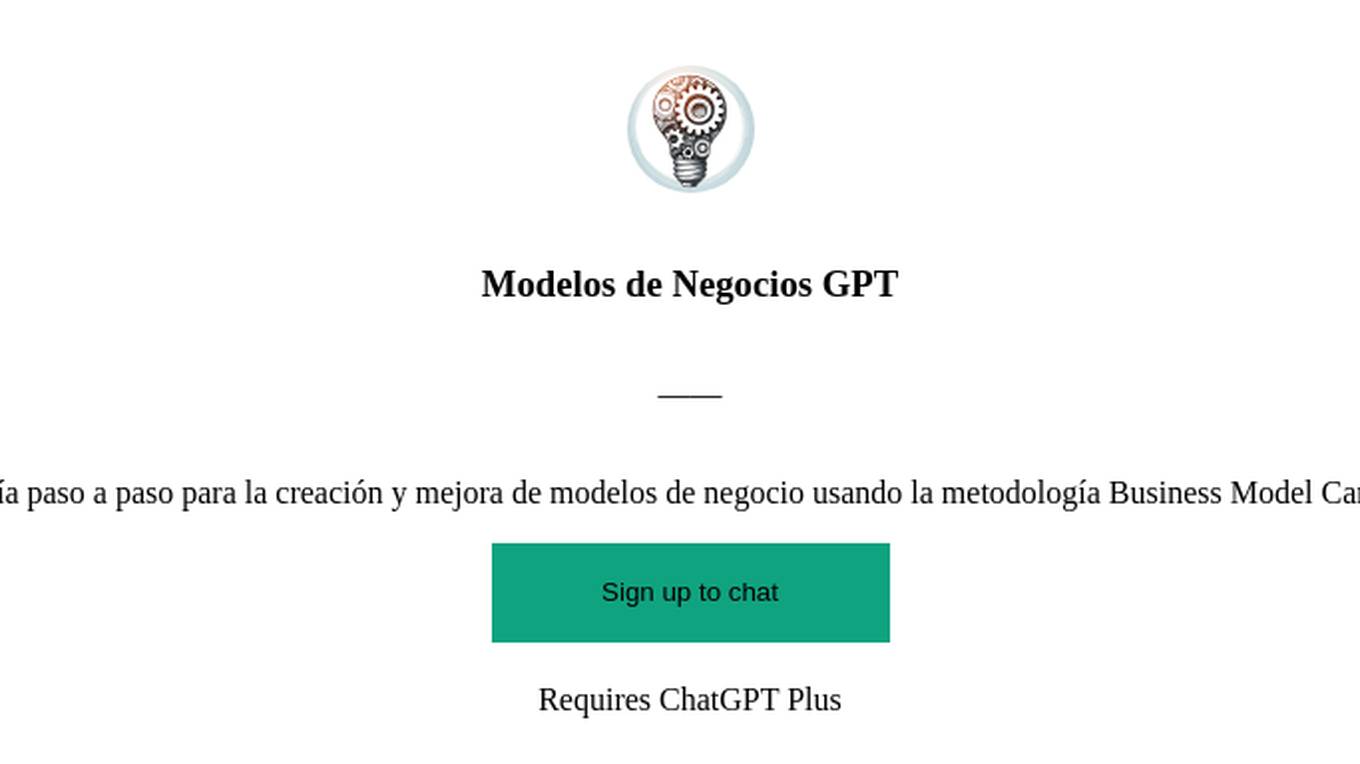
Modelos de Negocios GPT
Guía paso a paso para la creación y mejora de modelos de negocio usando la metodología Business Model Canvas.
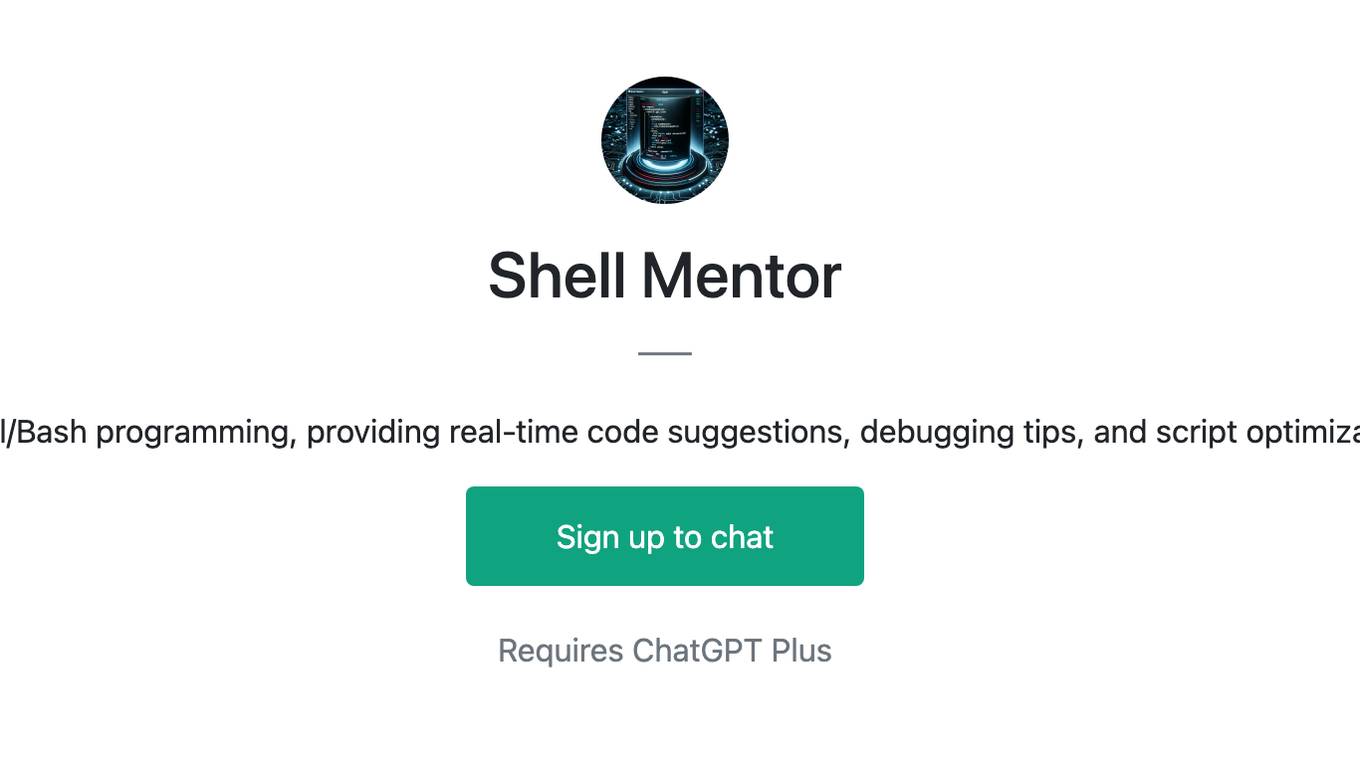
Shell Mentor
An AI GPT model designed to assist with Shell/Bash programming, providing real-time code suggestions, debugging tips, and script optimization for efficient command-line operations.
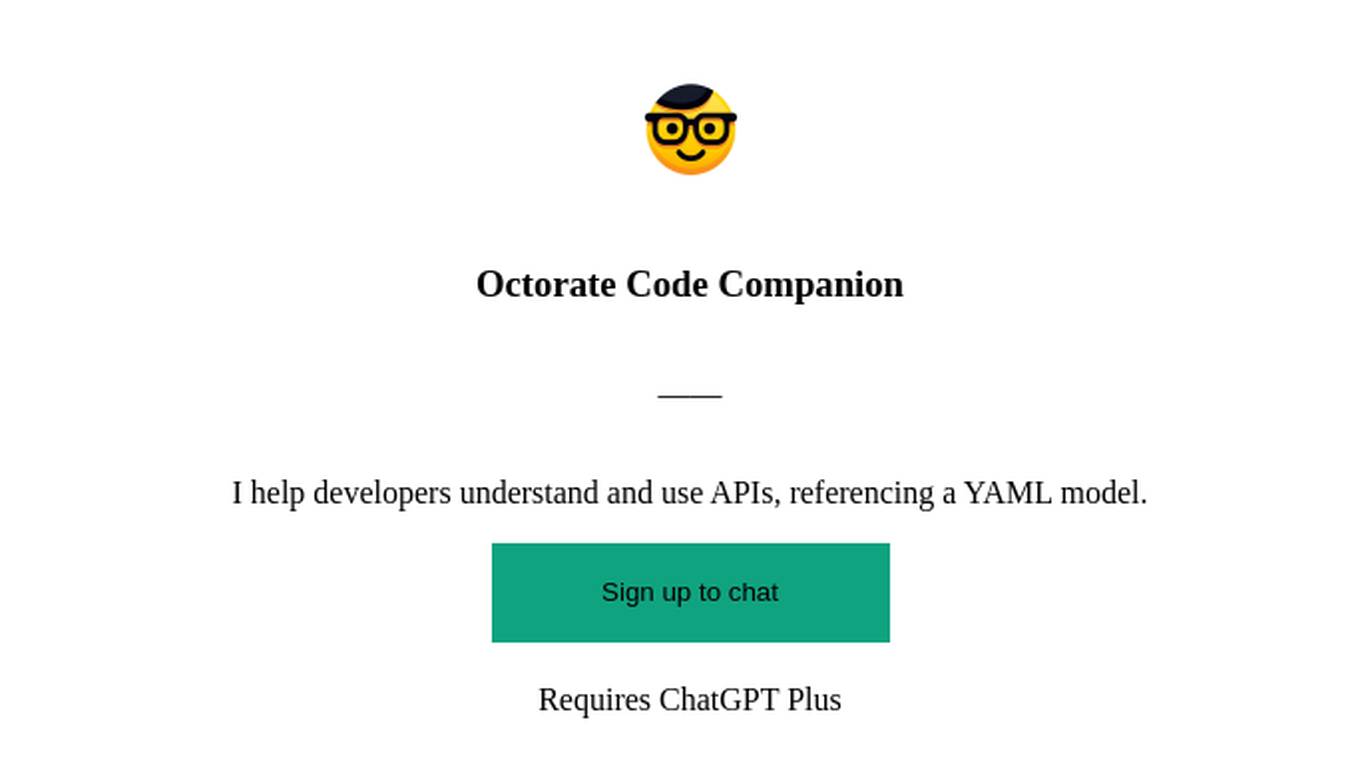
Octorate Code Companion
I help developers understand and use APIs, referencing a YAML model.
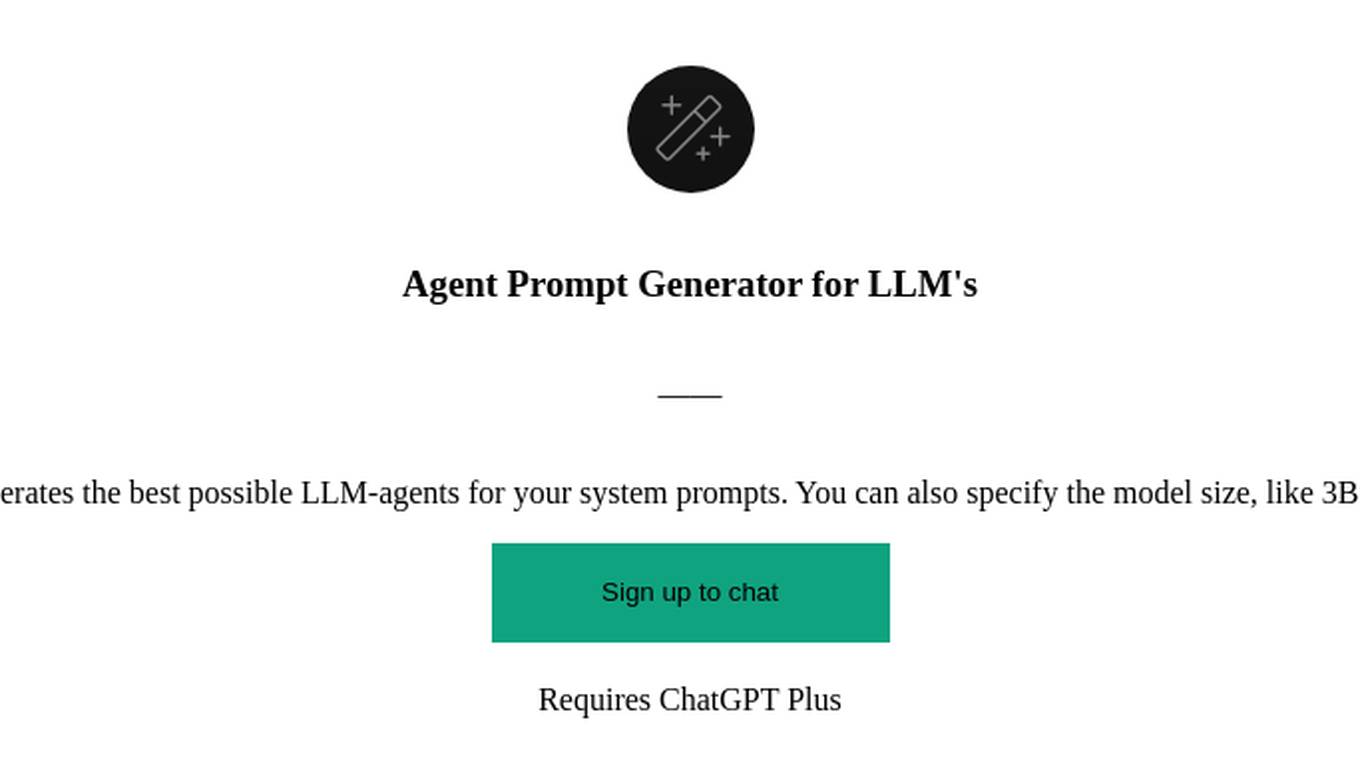
Agent Prompt Generator for LLM's
This GPT generates the best possible LLM-agents for your system prompts. You can also specify the model size, like 3B, 33B, 70B, etc.
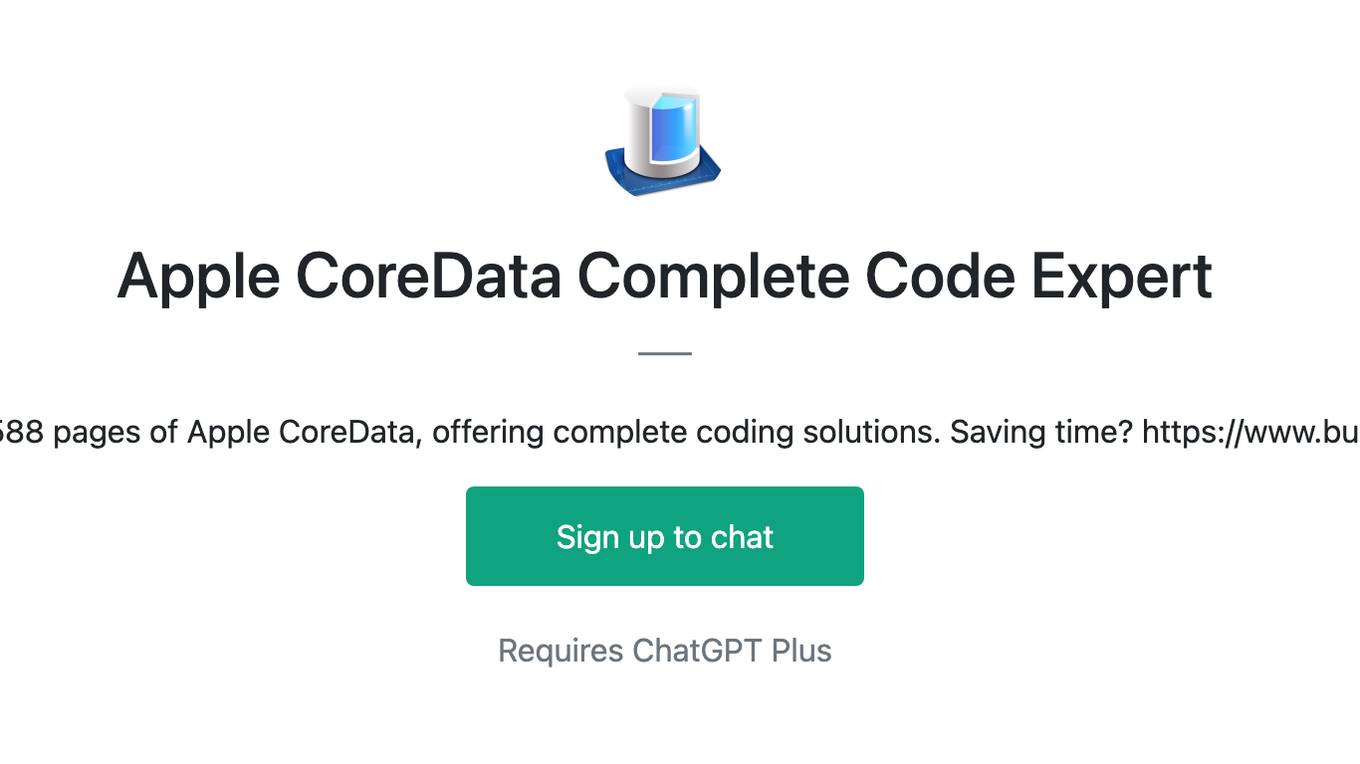
Apple CoreData Complete Code Expert
A detailed expert trained on all 5,588 pages of Apple CoreData, offering complete coding solutions. Saving time? https://www.buymeacoffee.com/parkerrex ☕️❤️
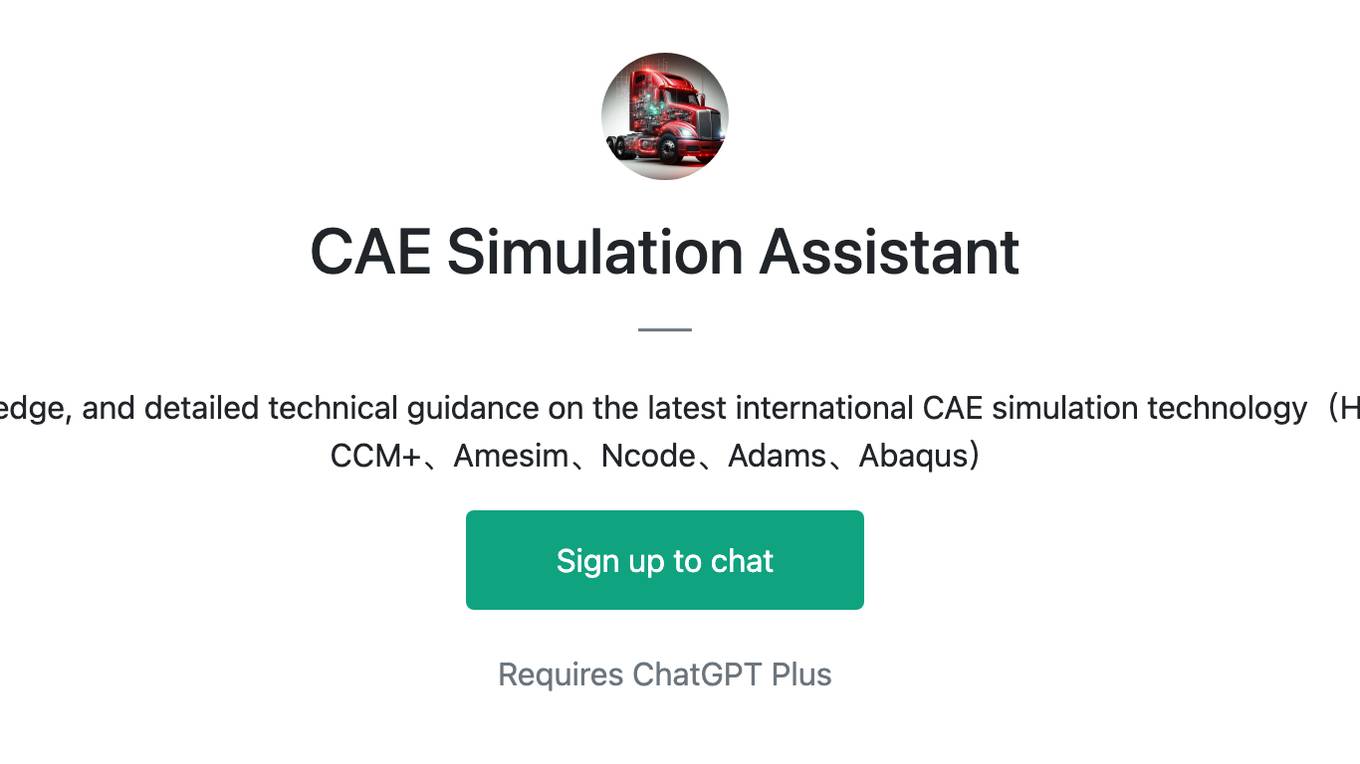
CAE Simulation Assistant
Providing the most comprehensive, cutting-edge, and detailed technical guidance on the latest international CAE simulation technology(HyperMesh、THESEUS-FE、ANSA、STAR-CCM+、Amesim、Ncode、Adams、Abaqus)
